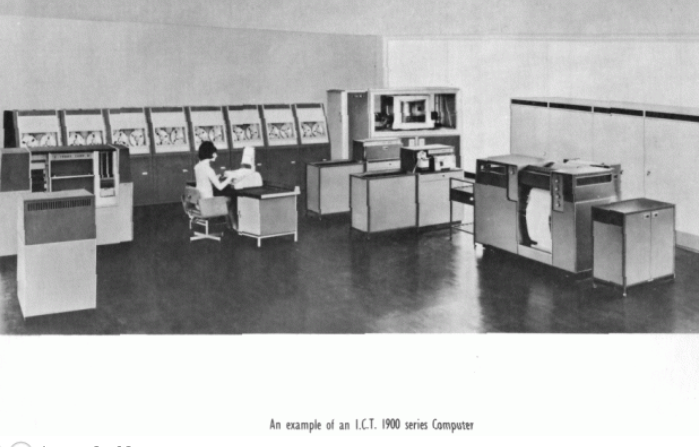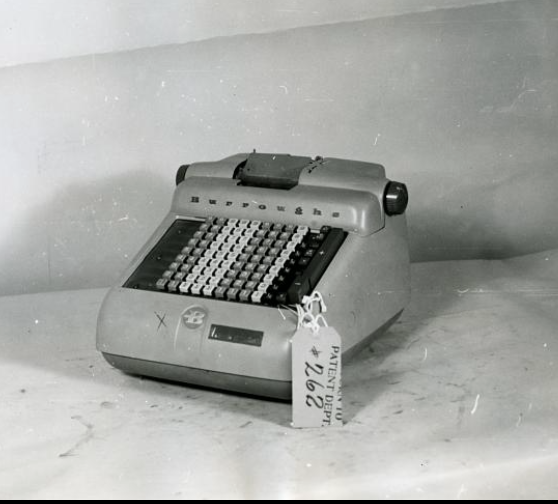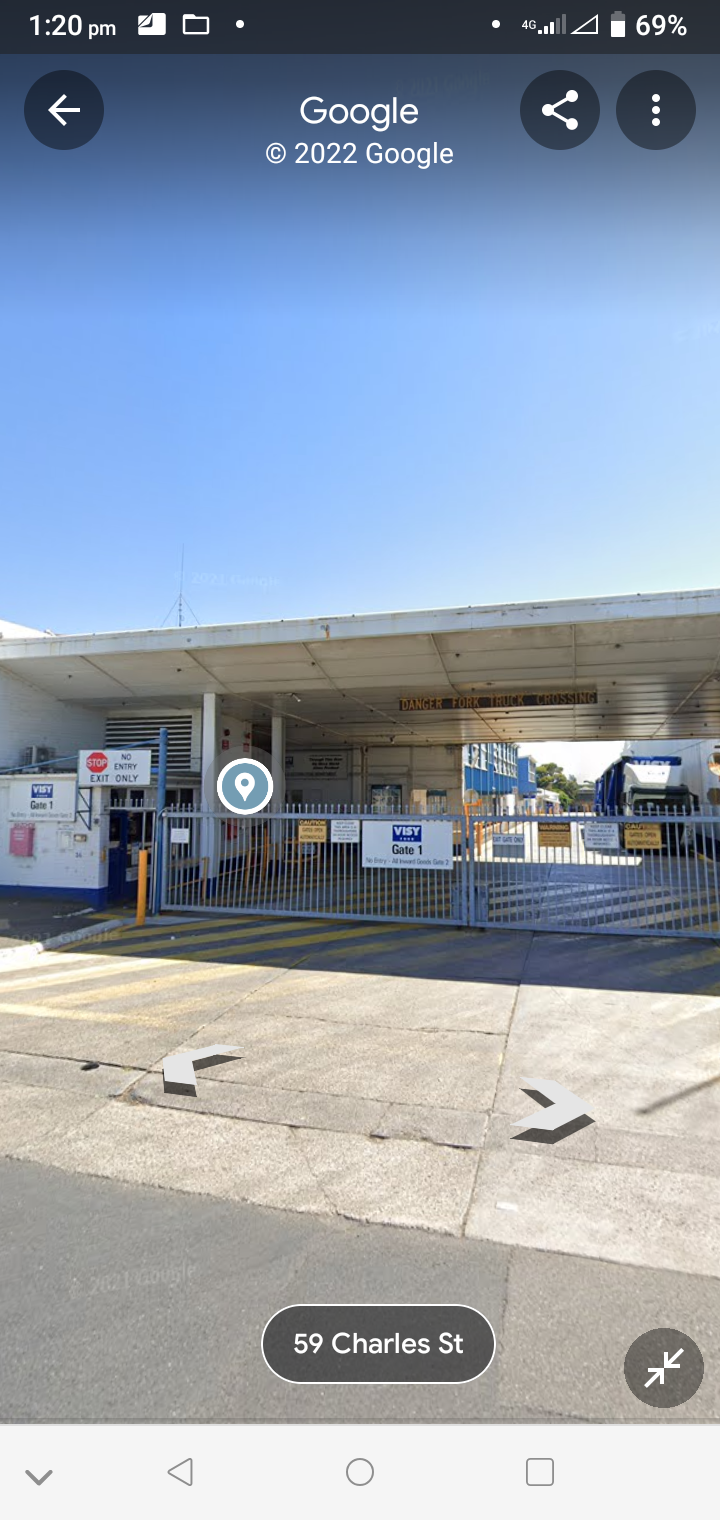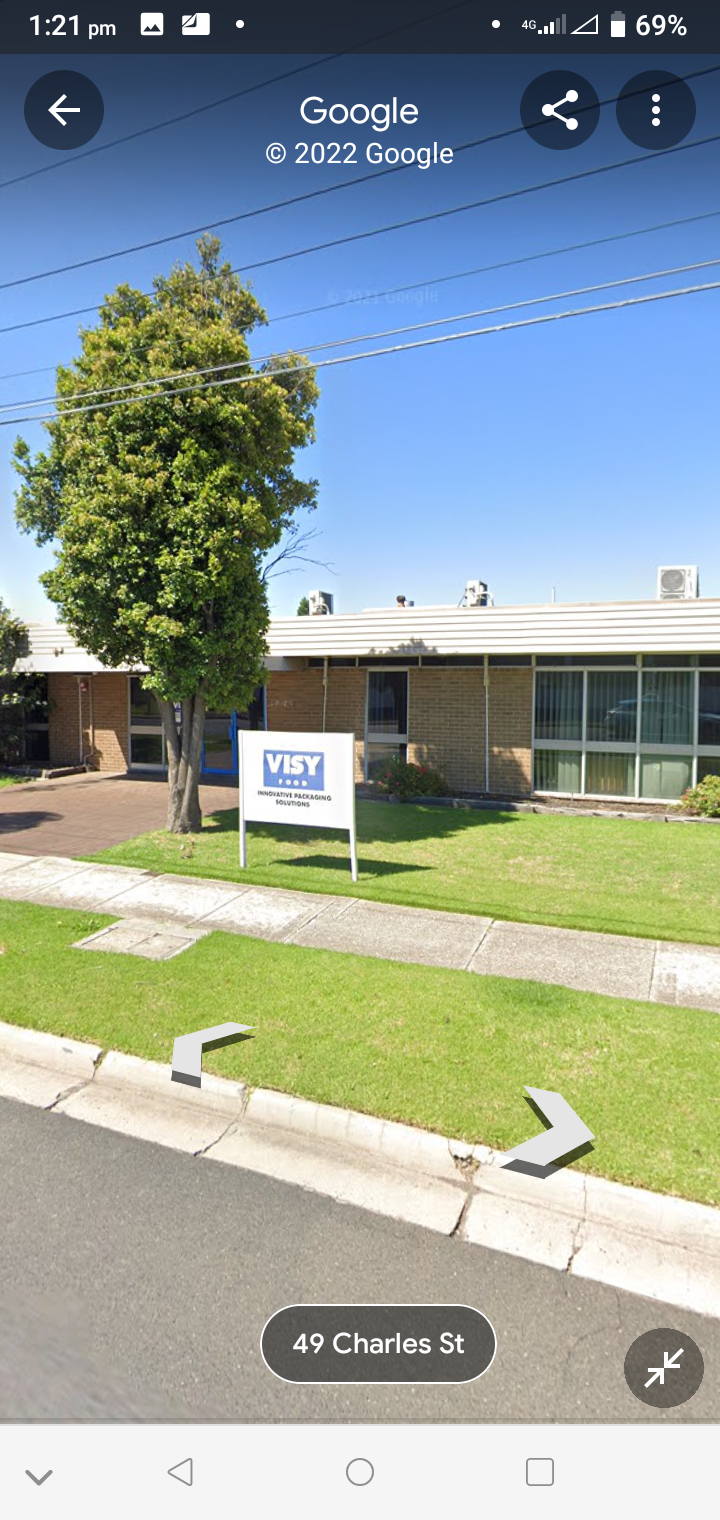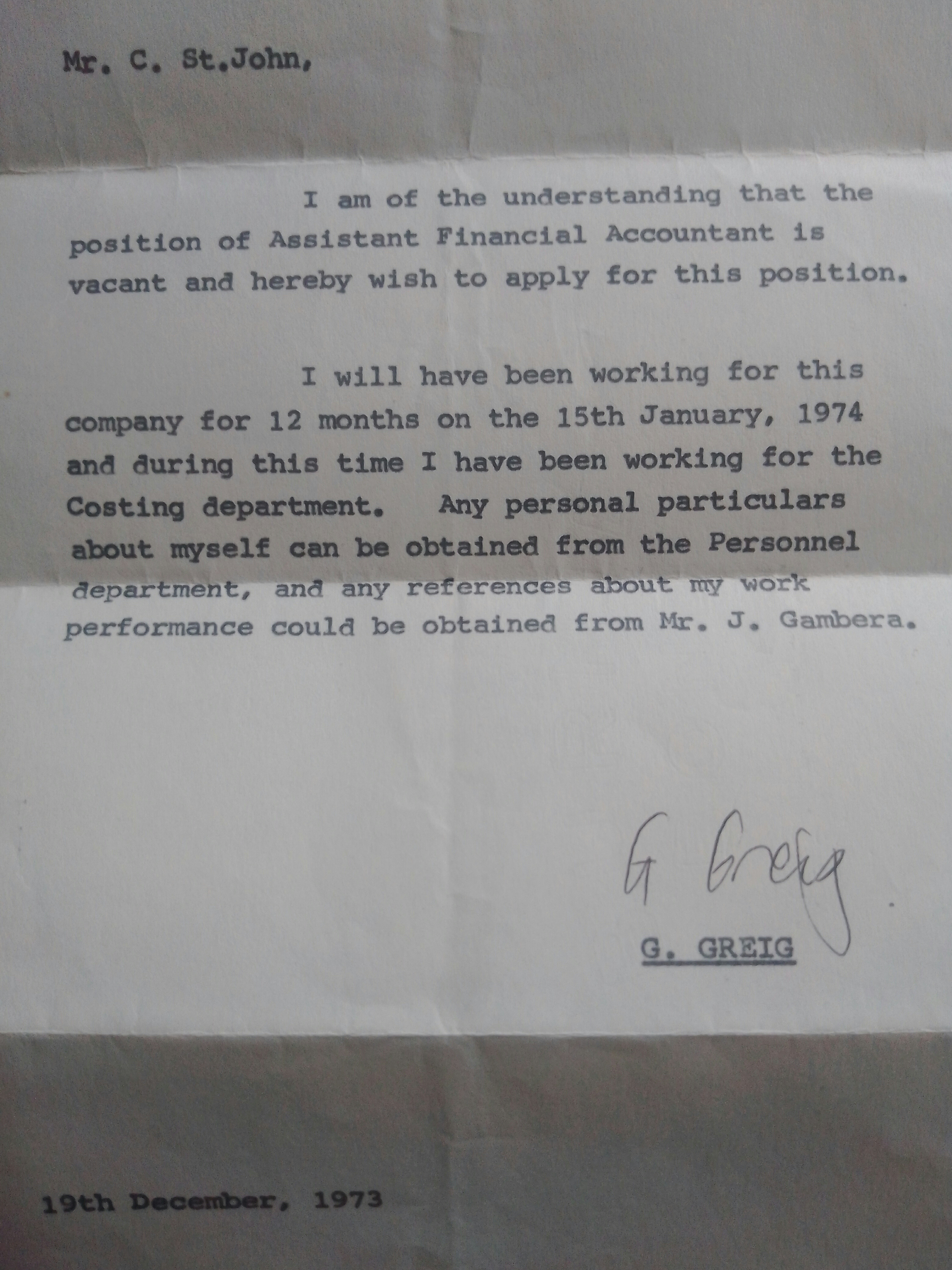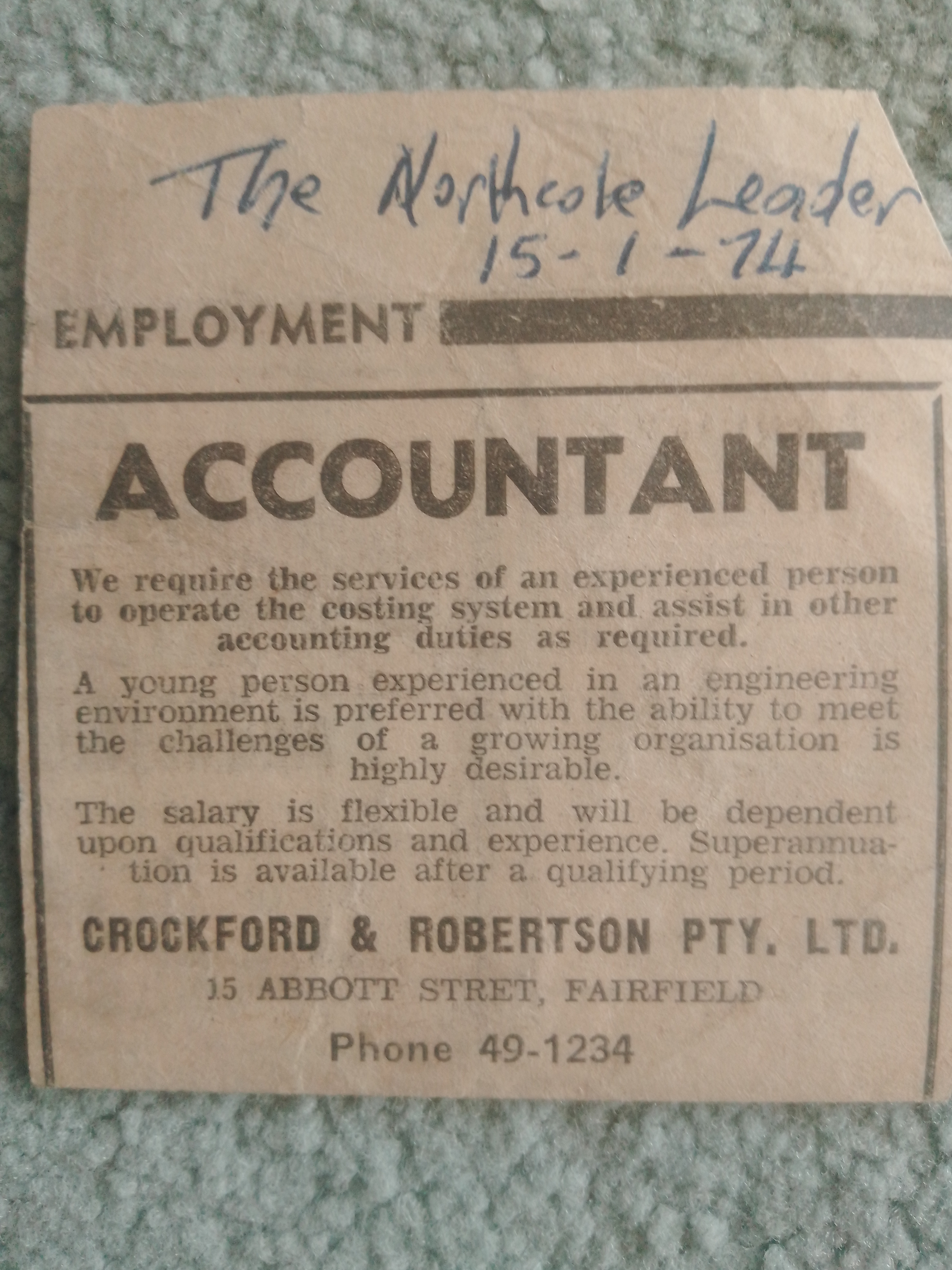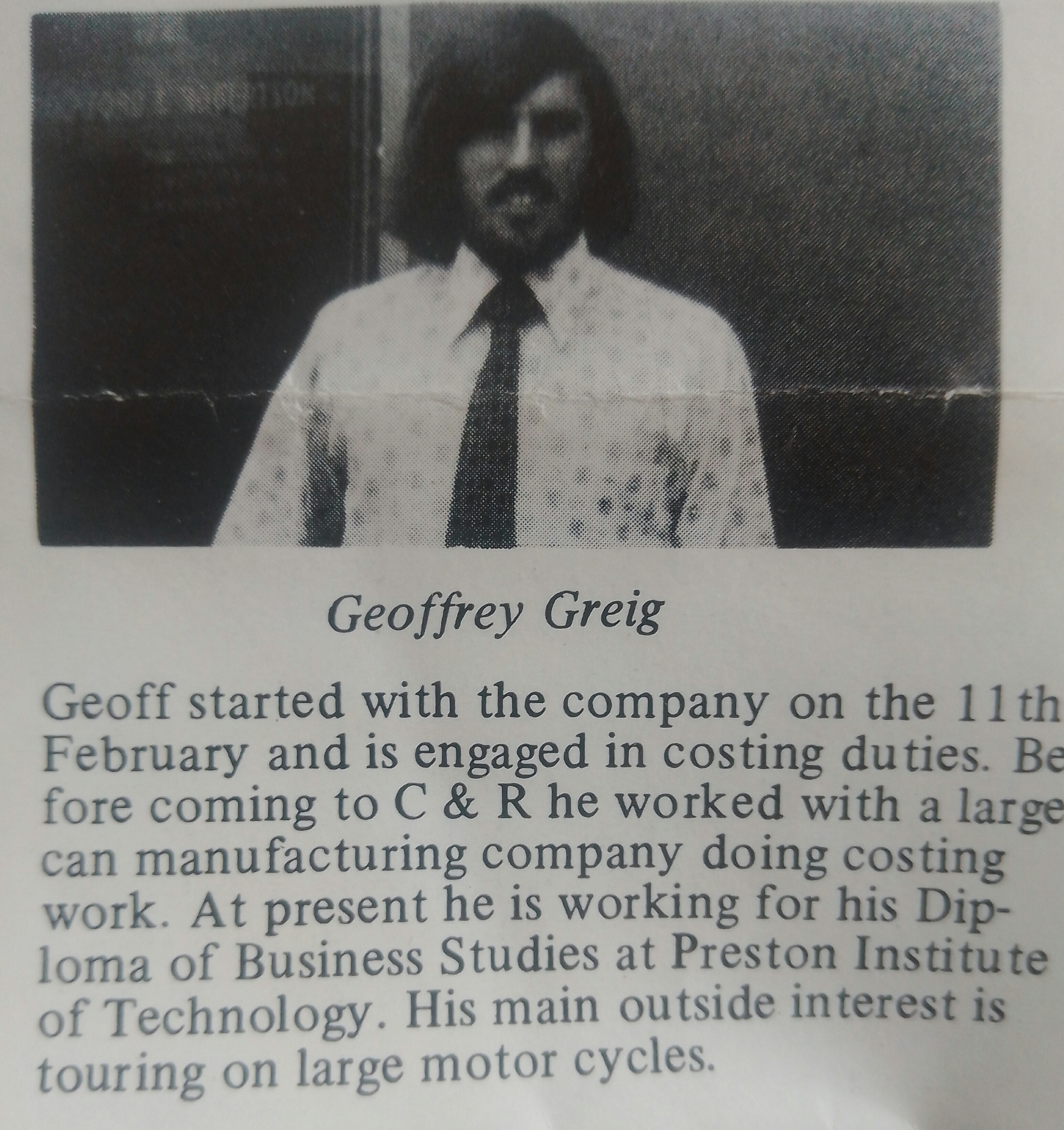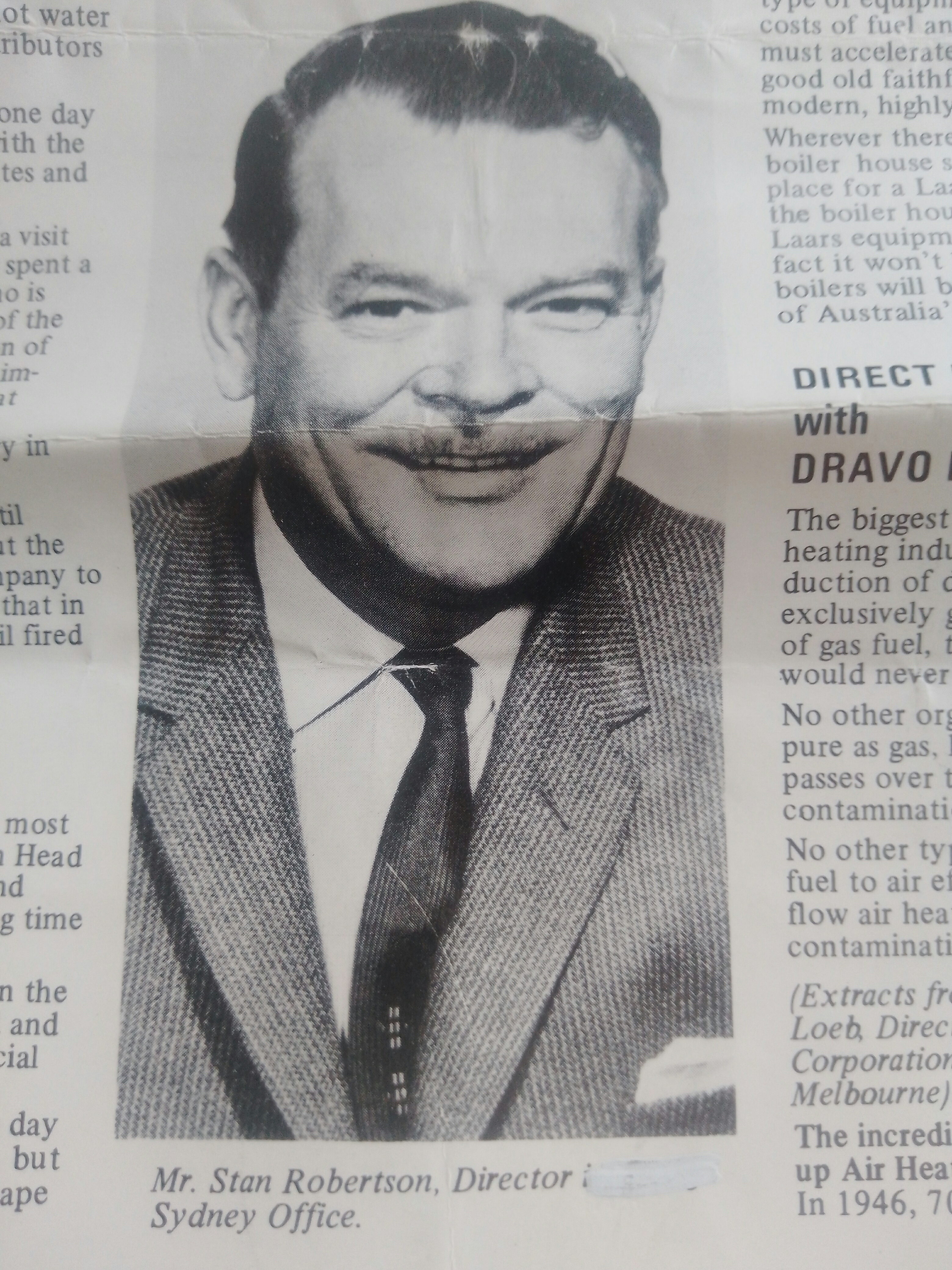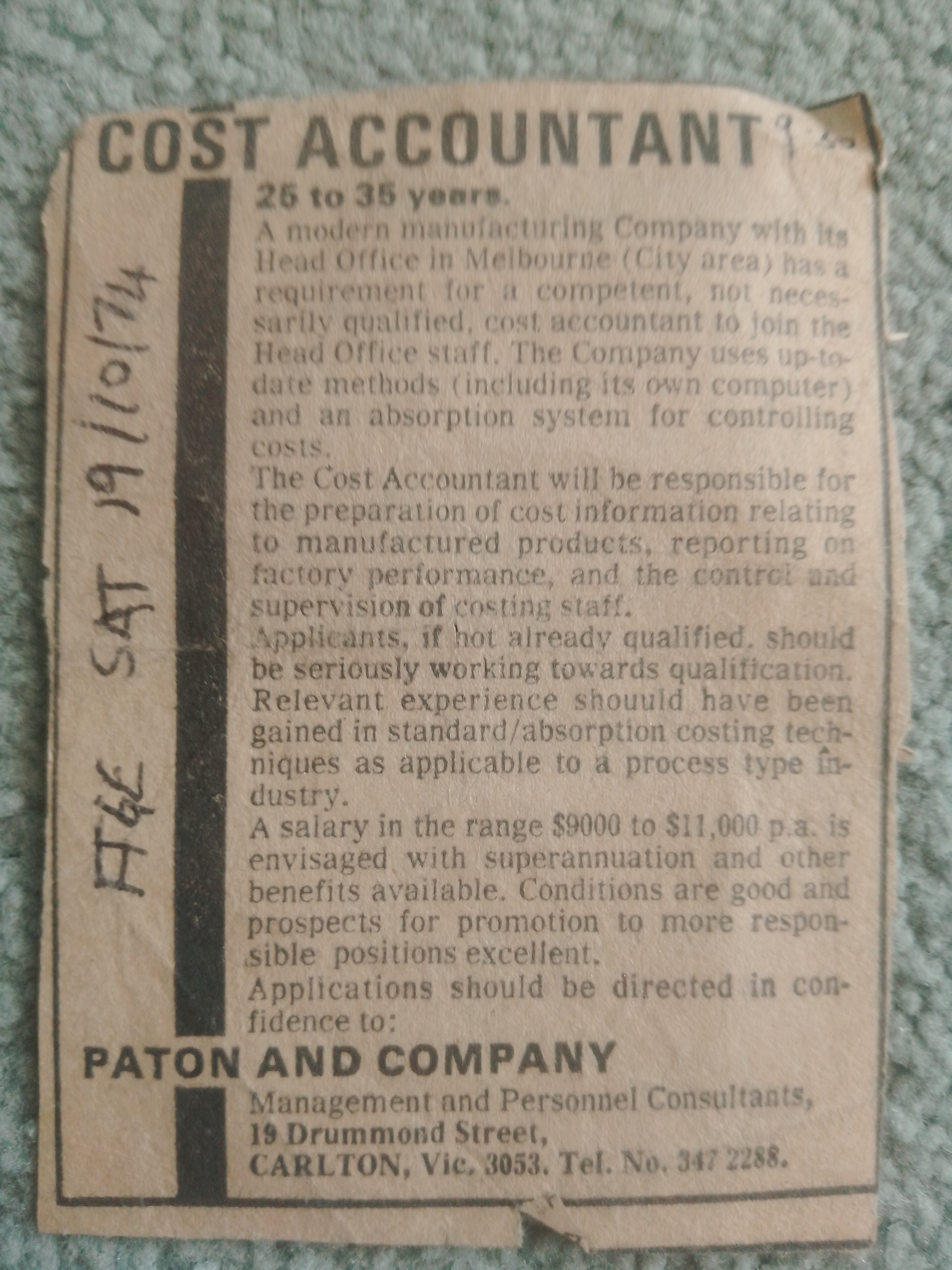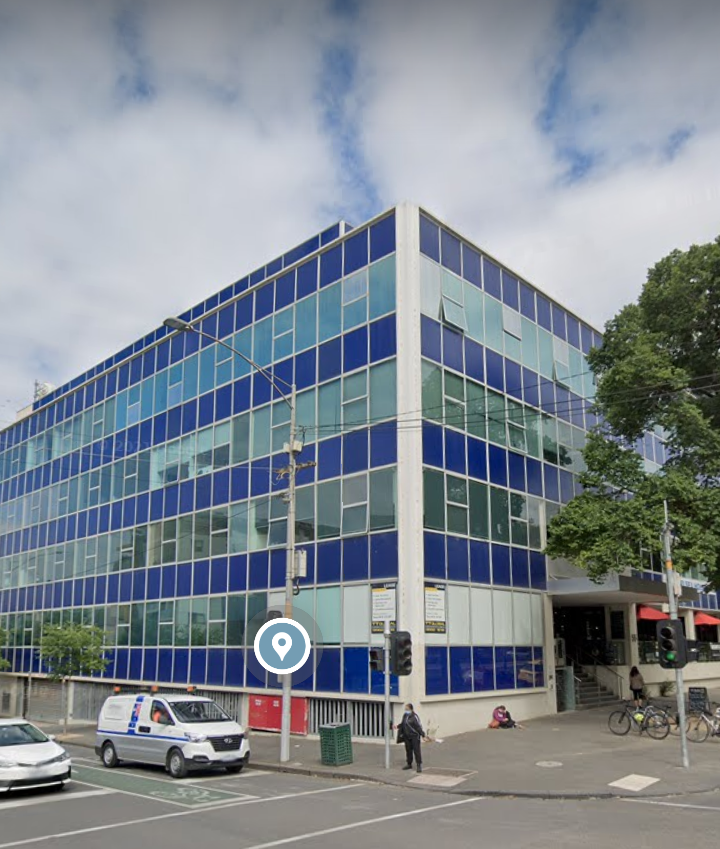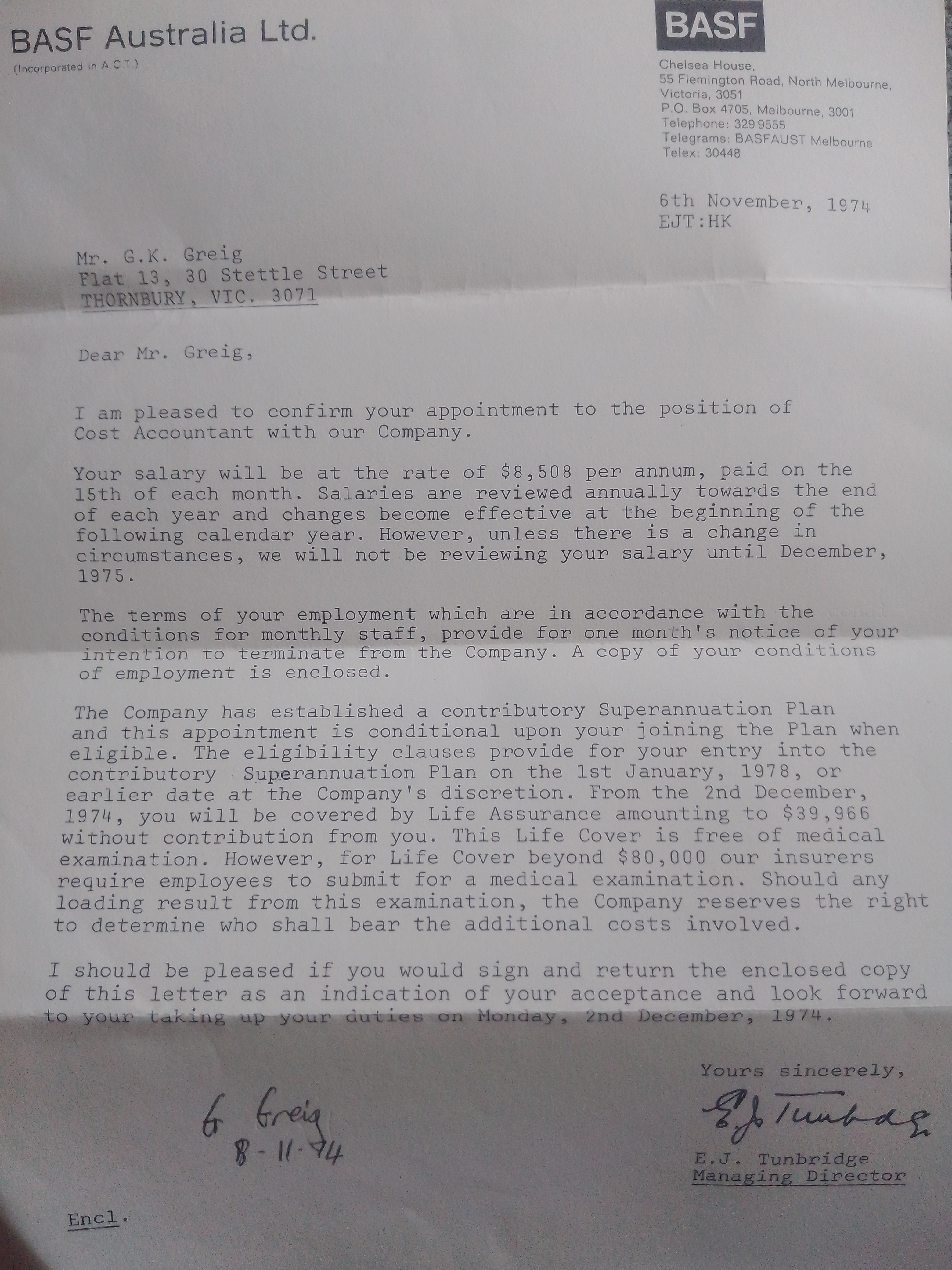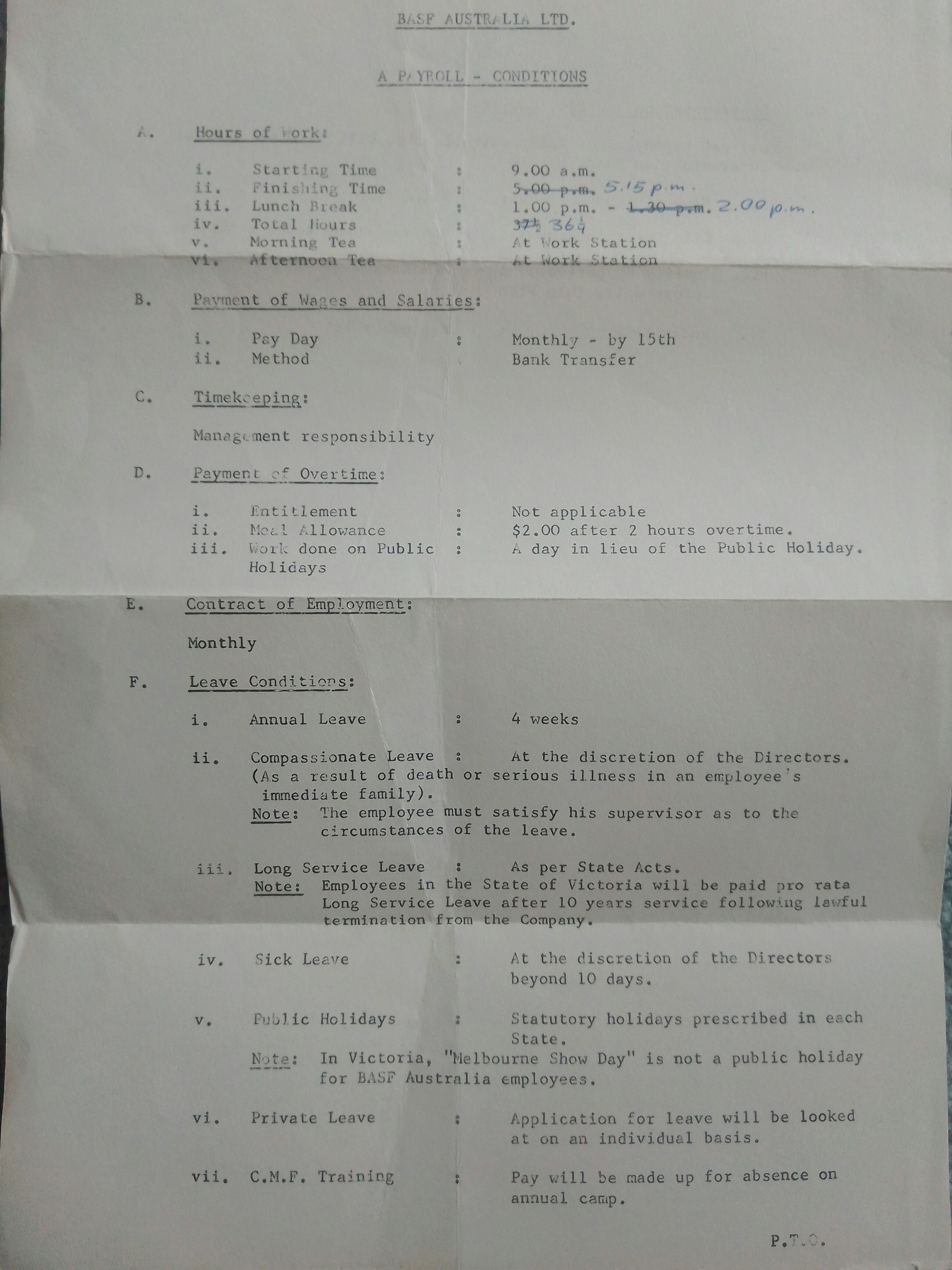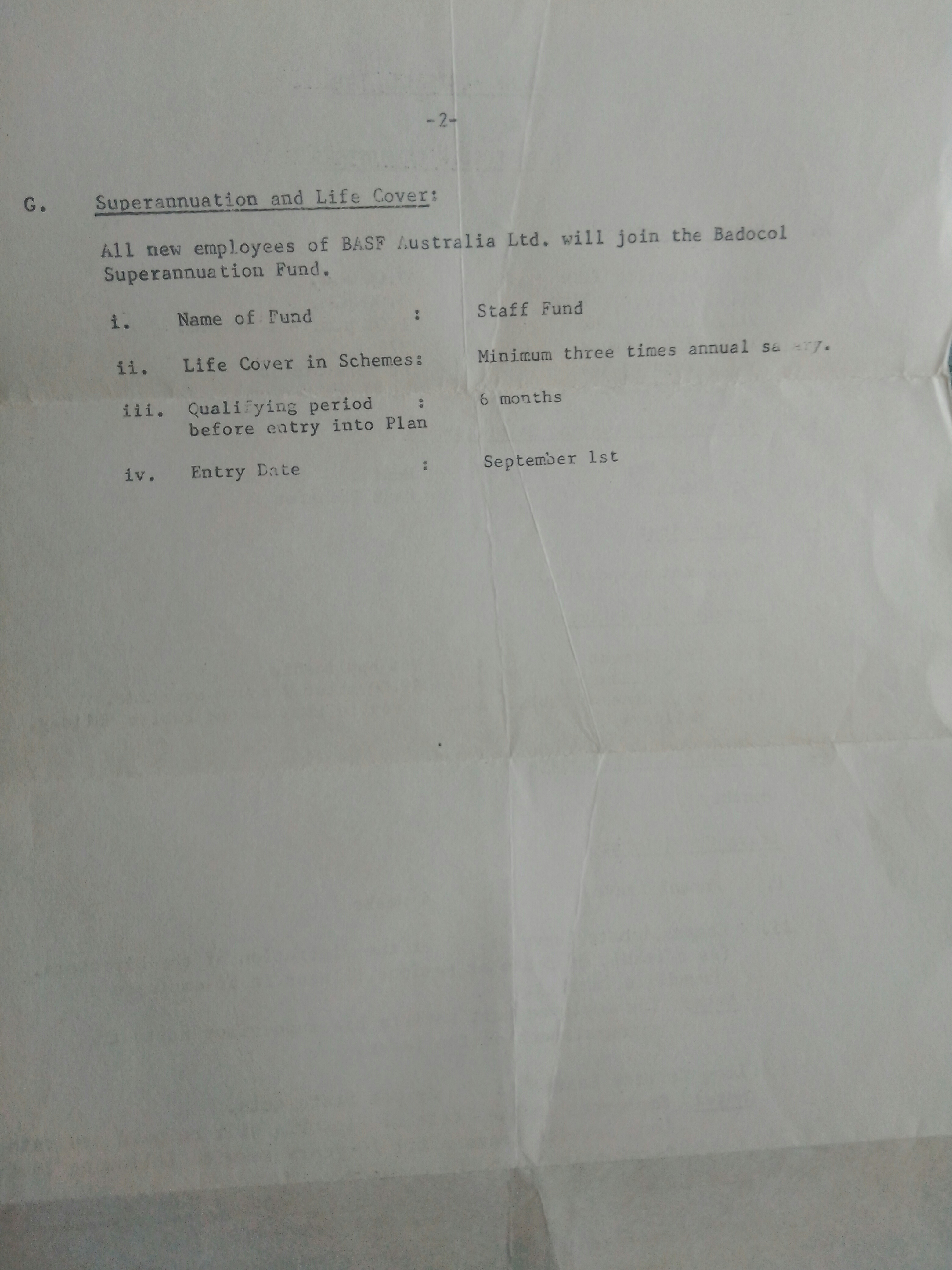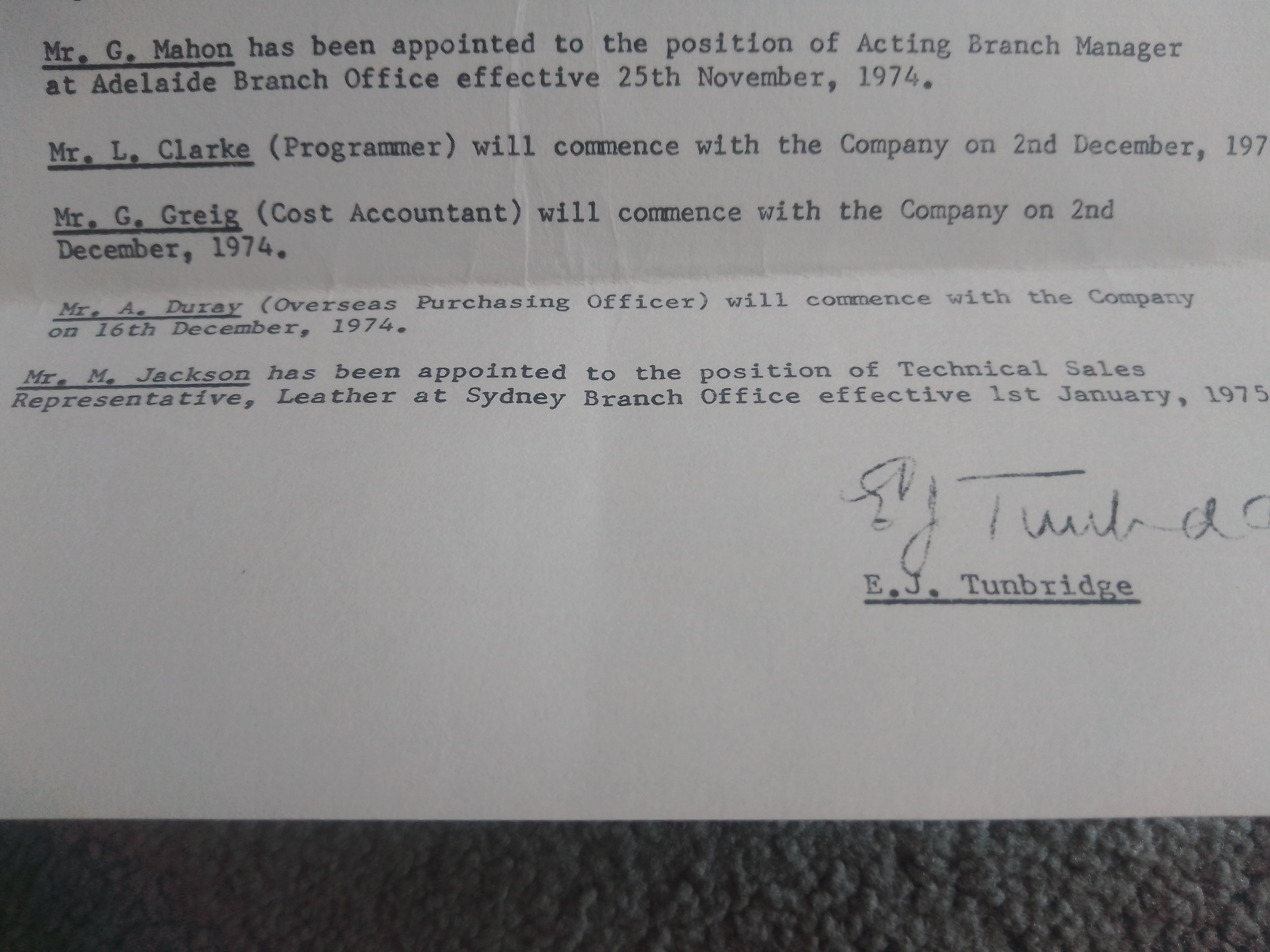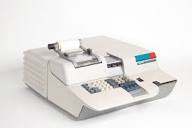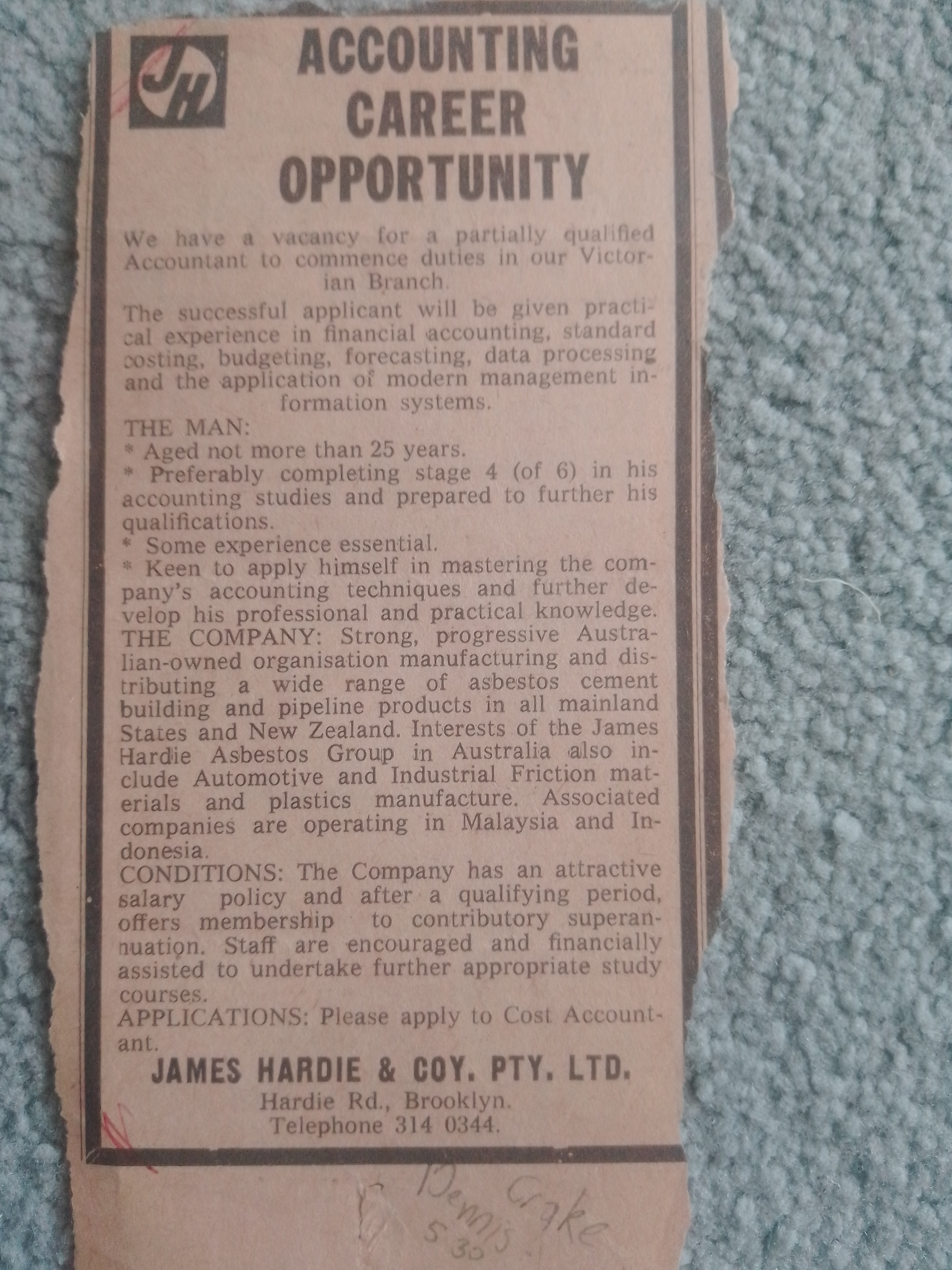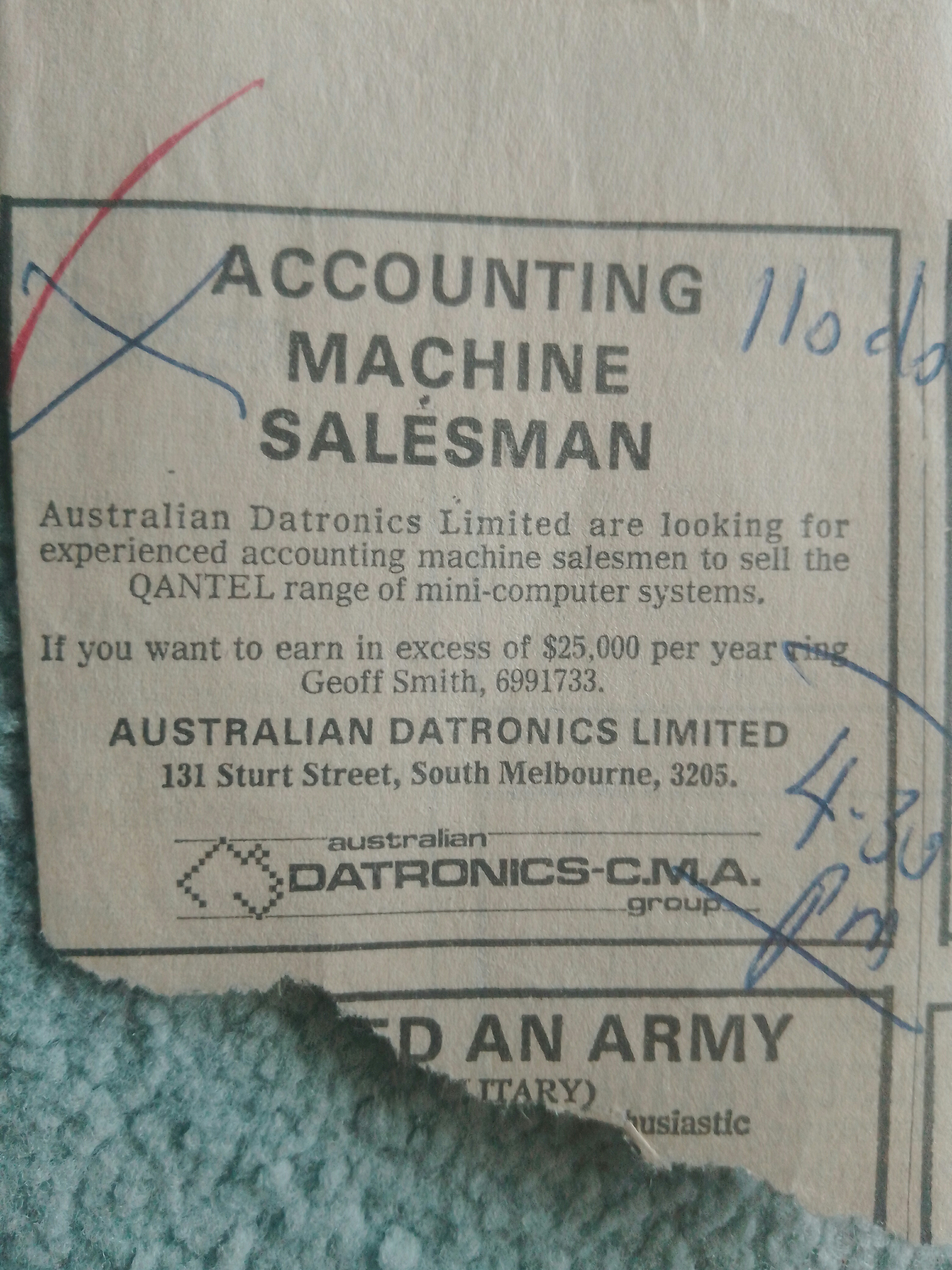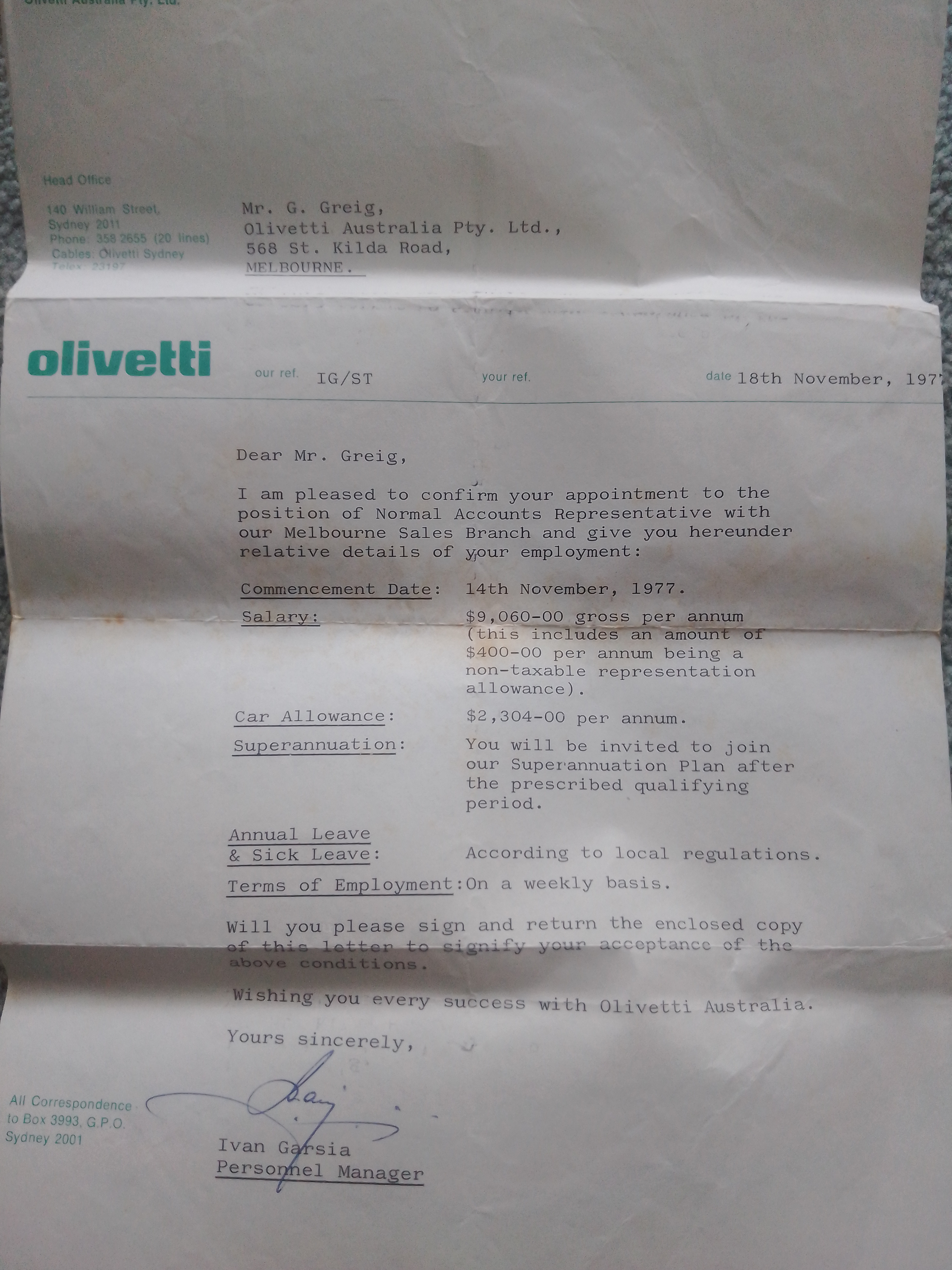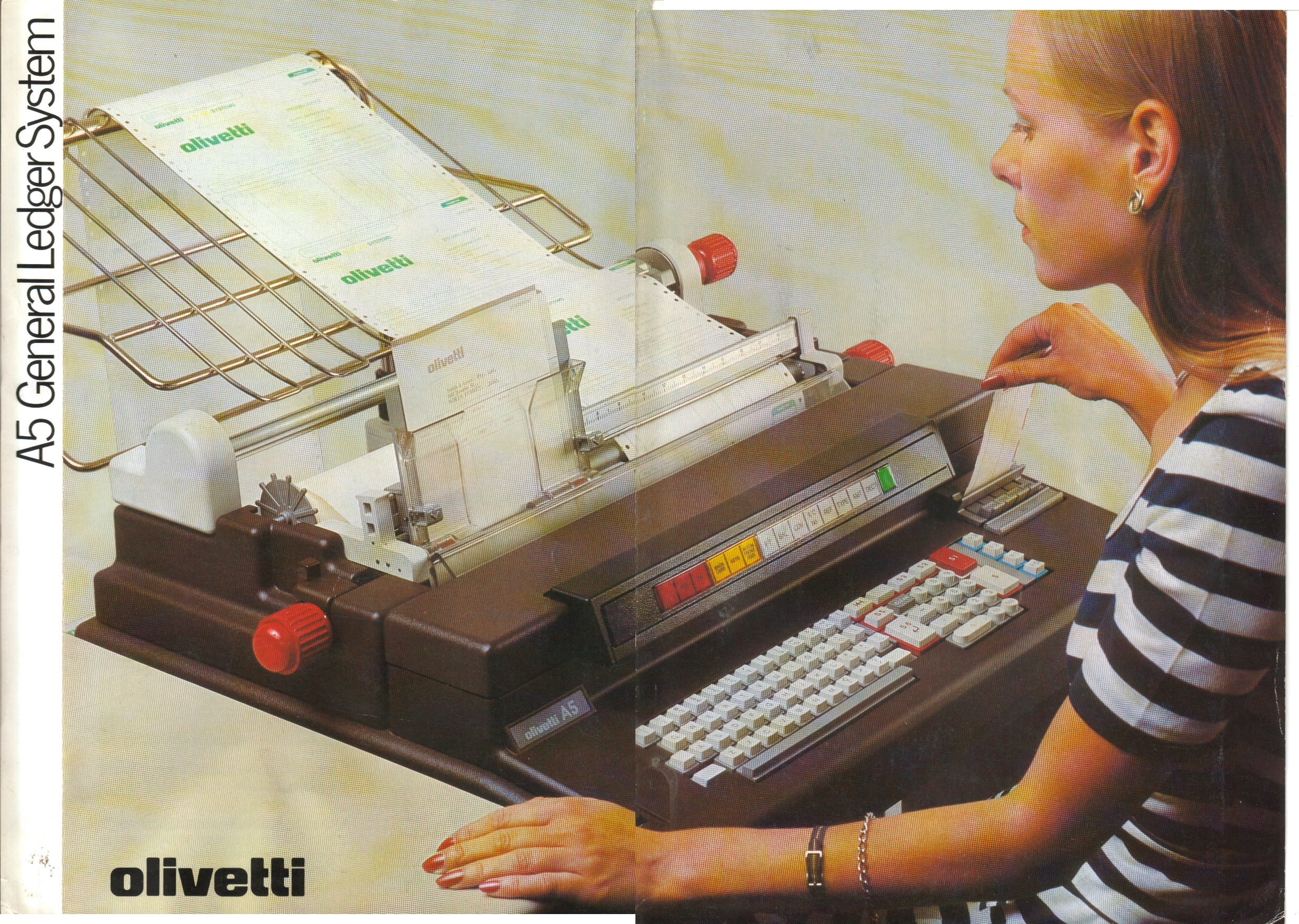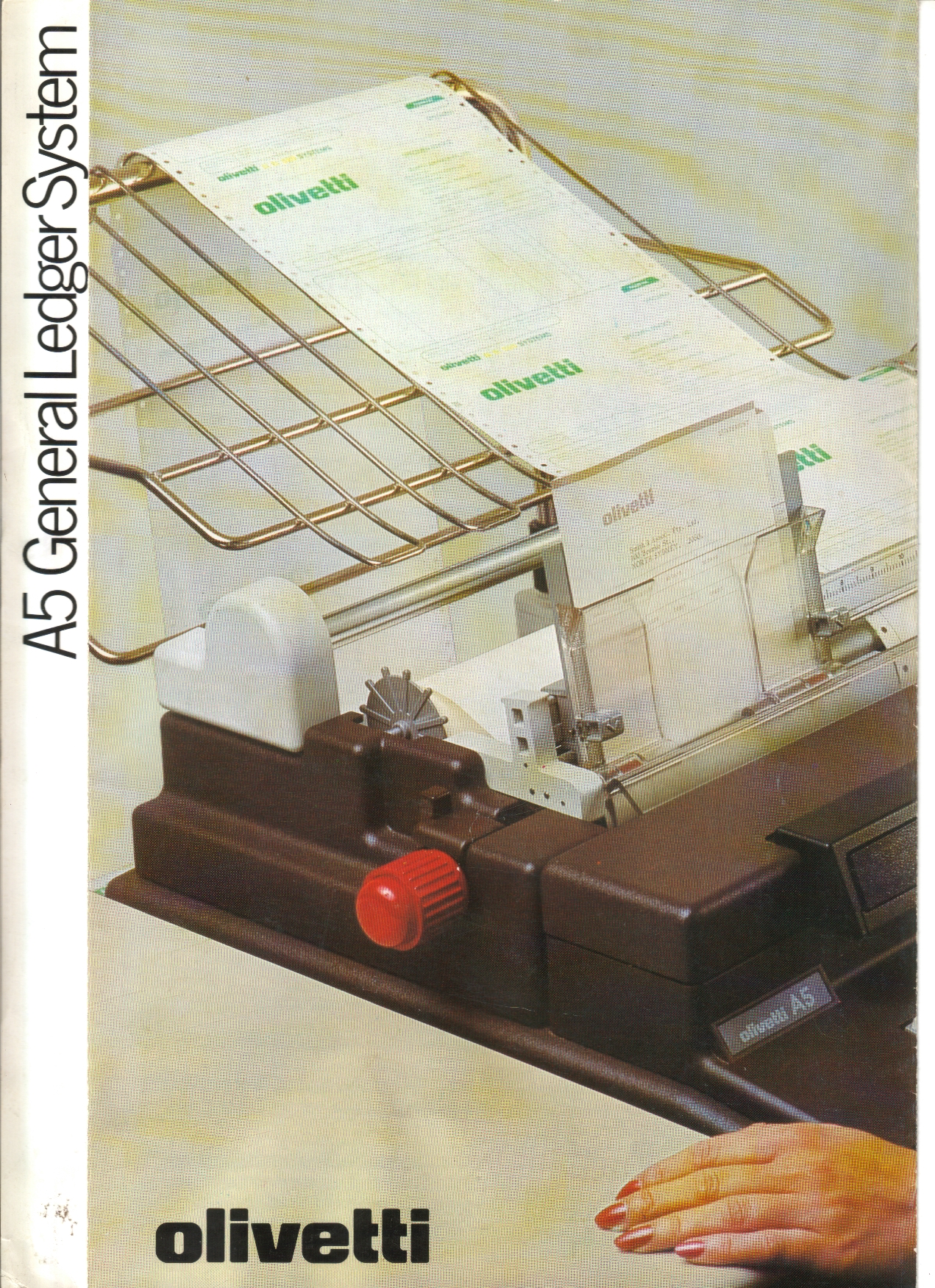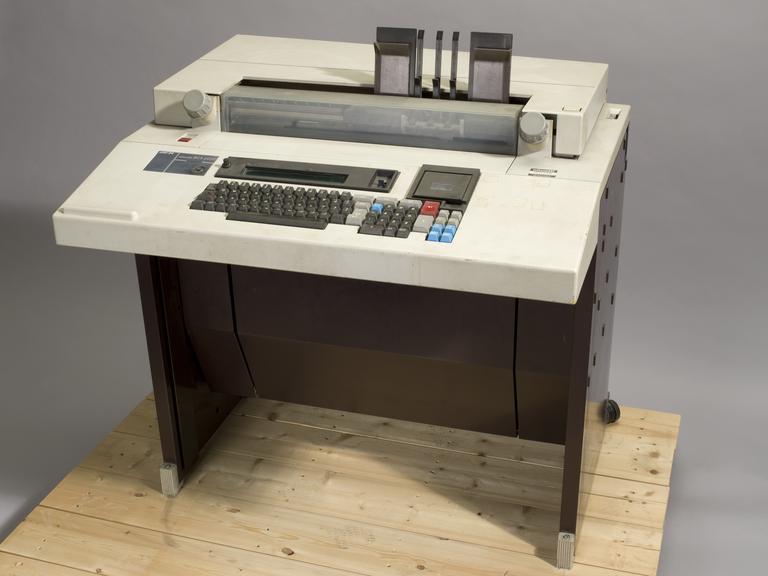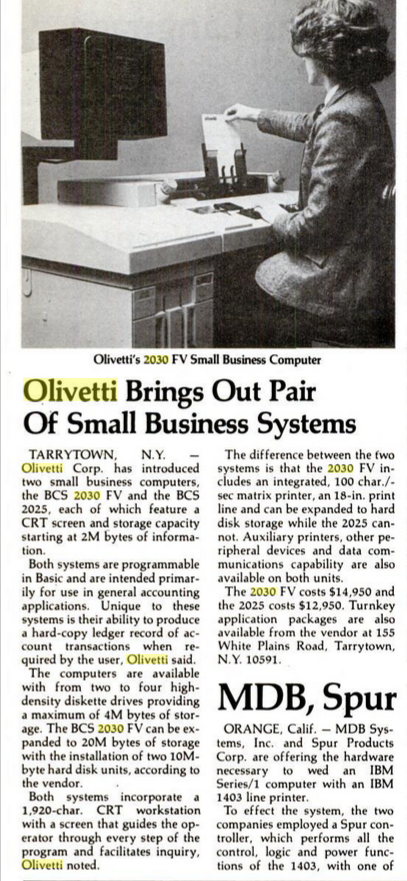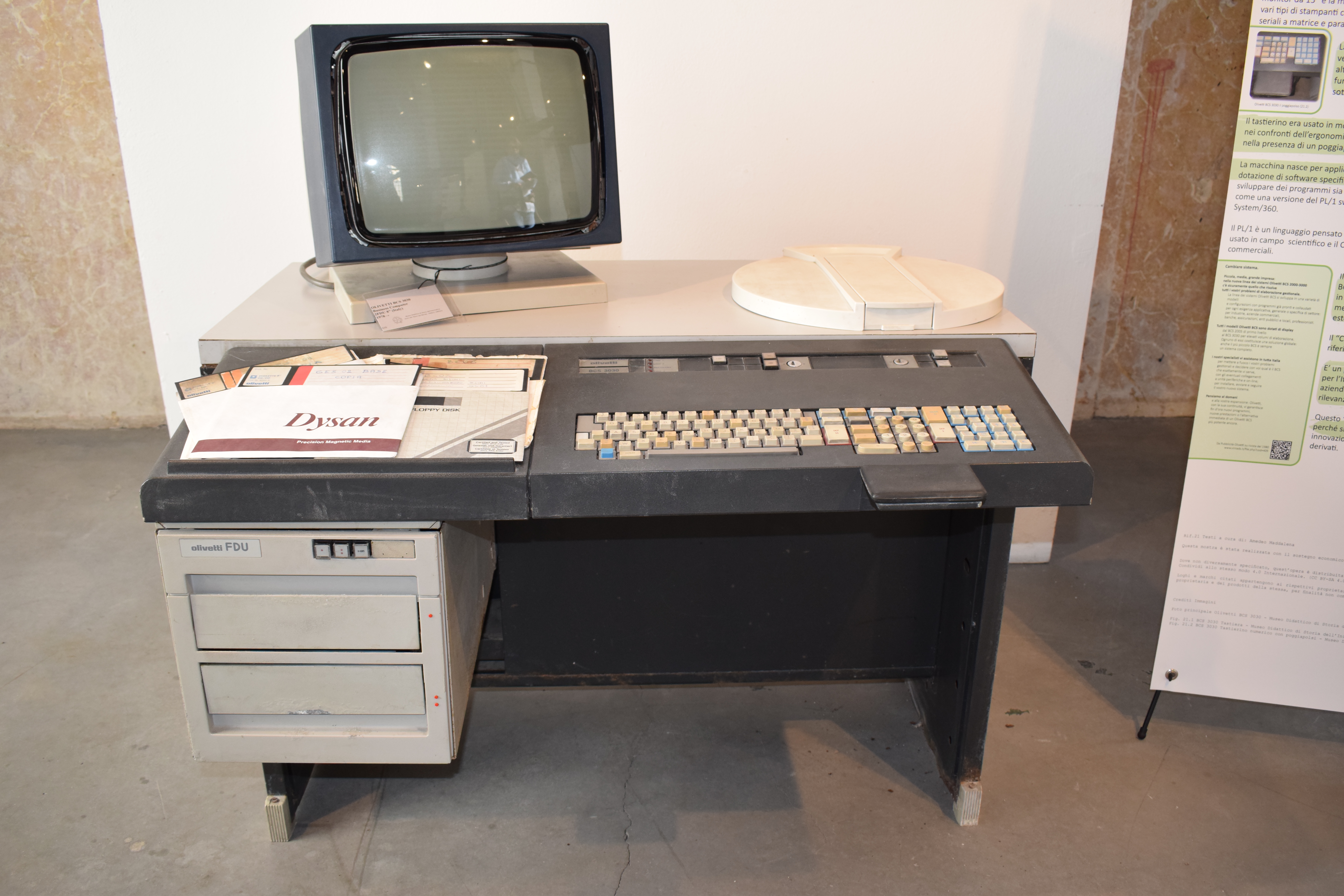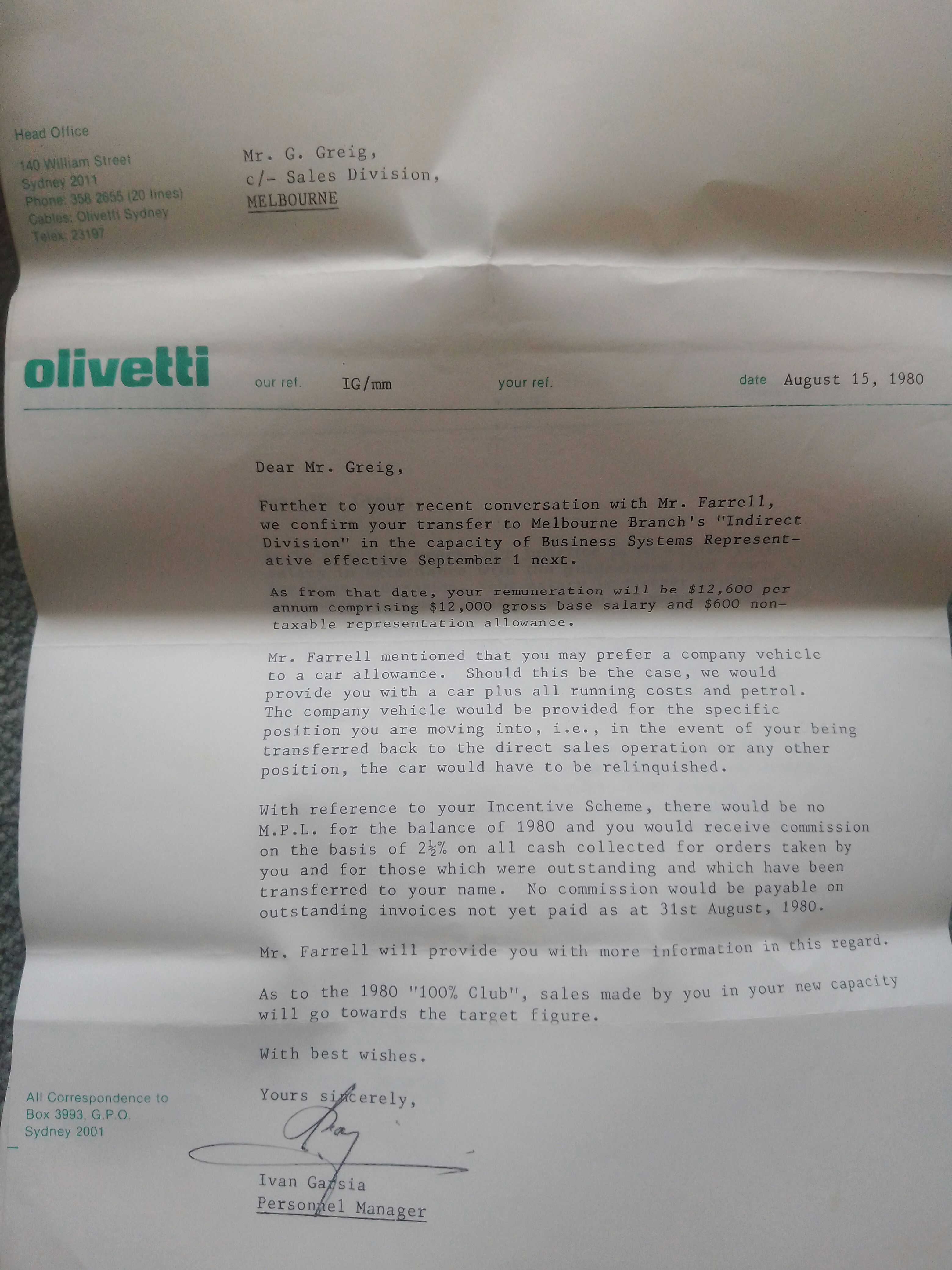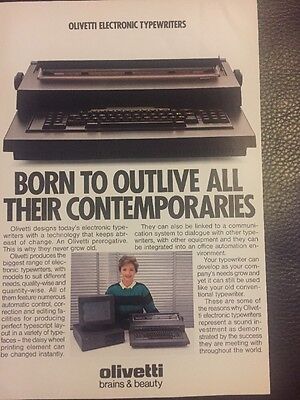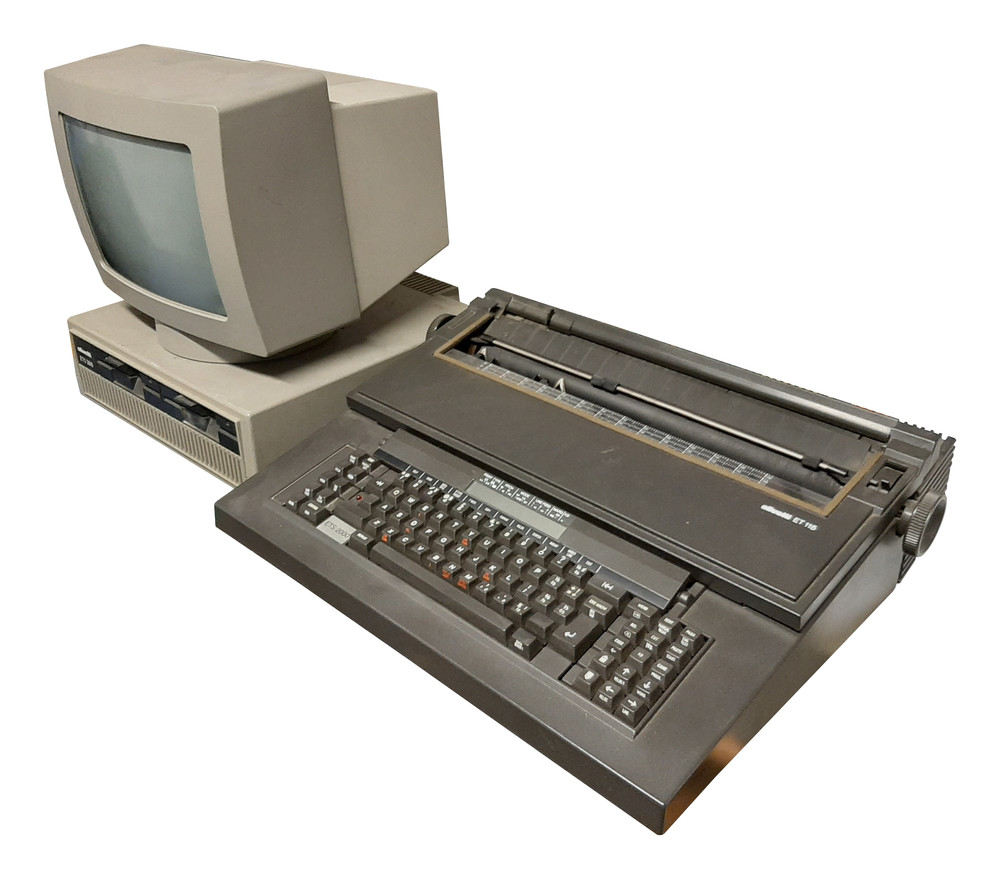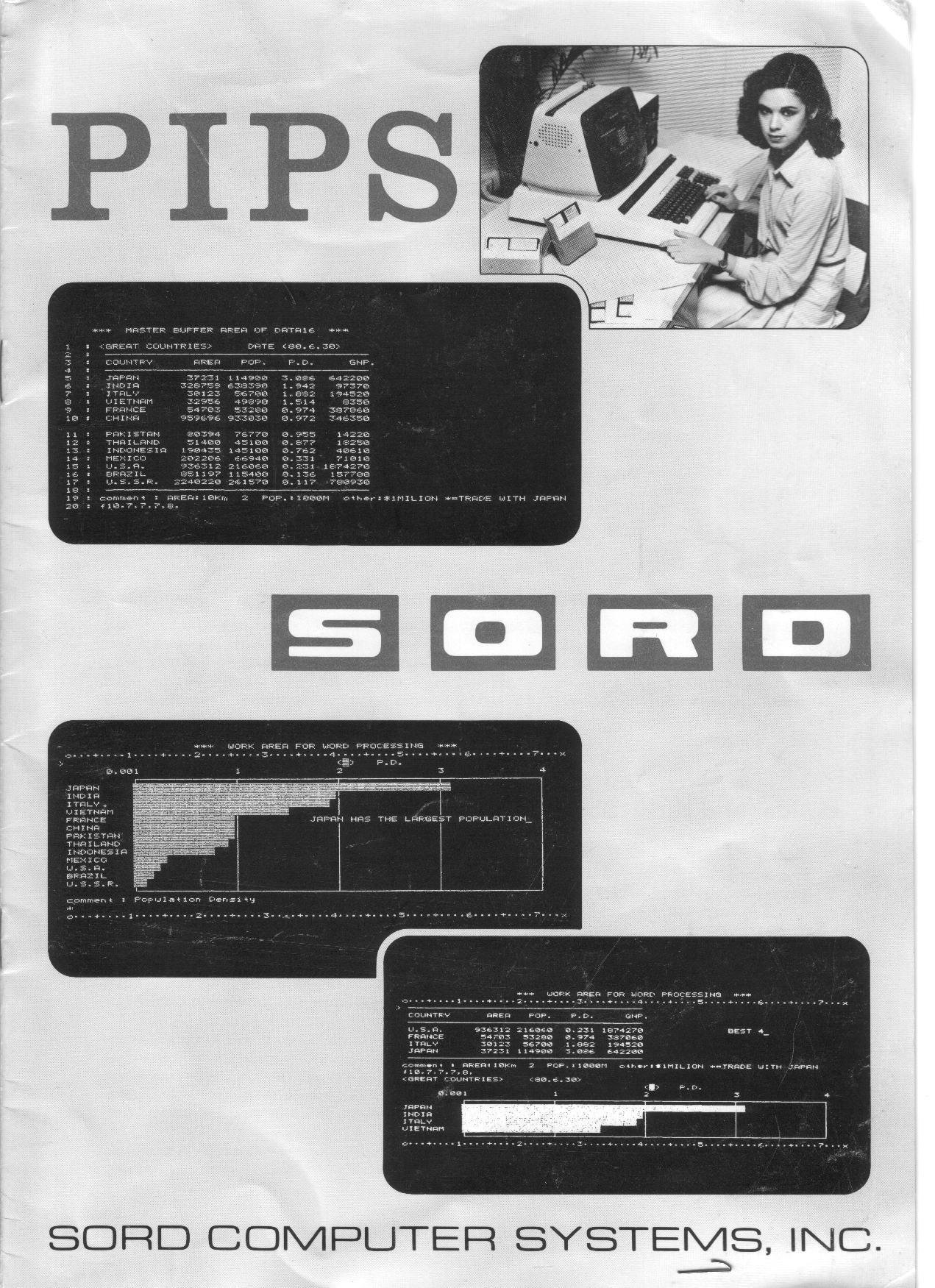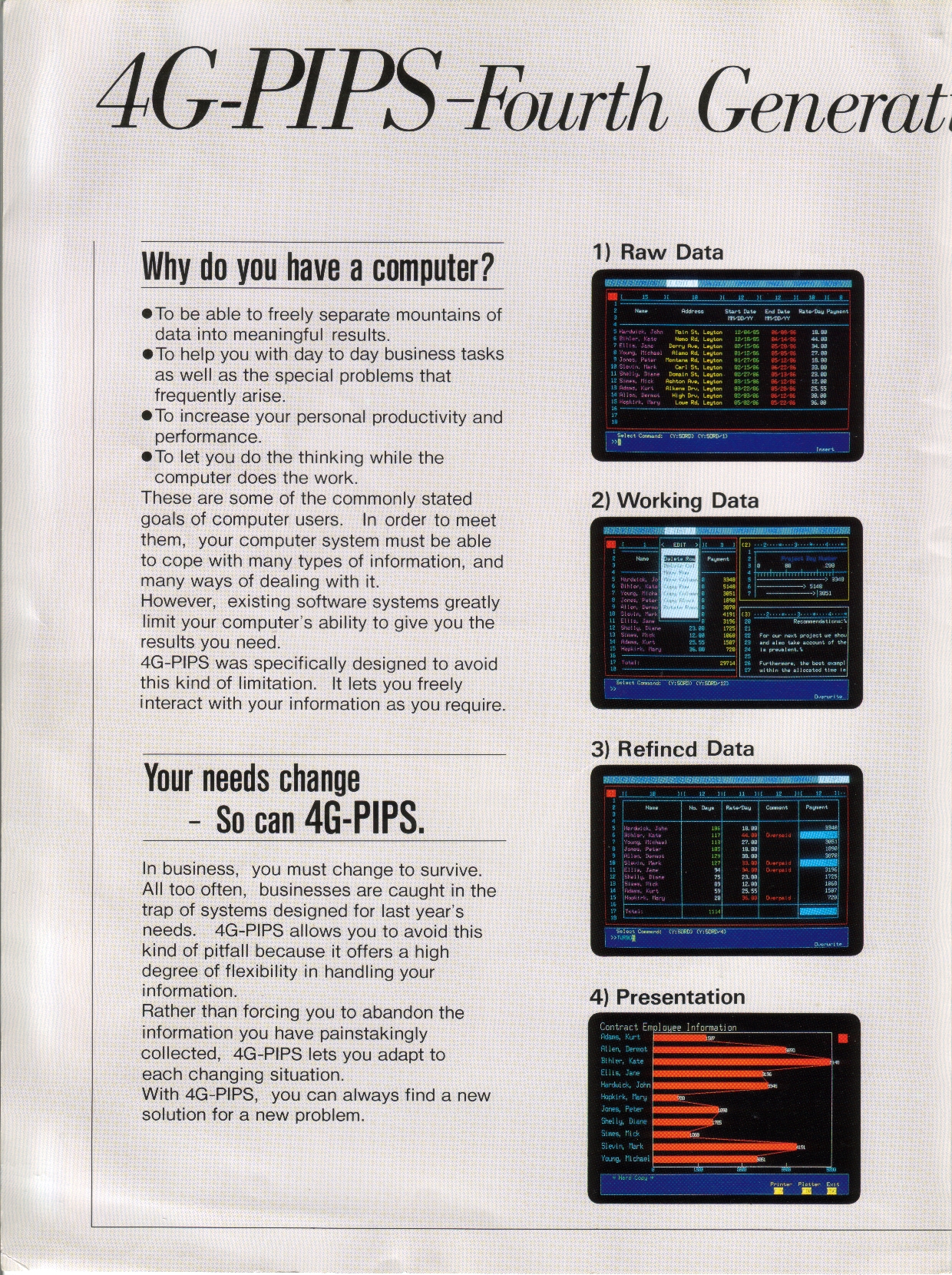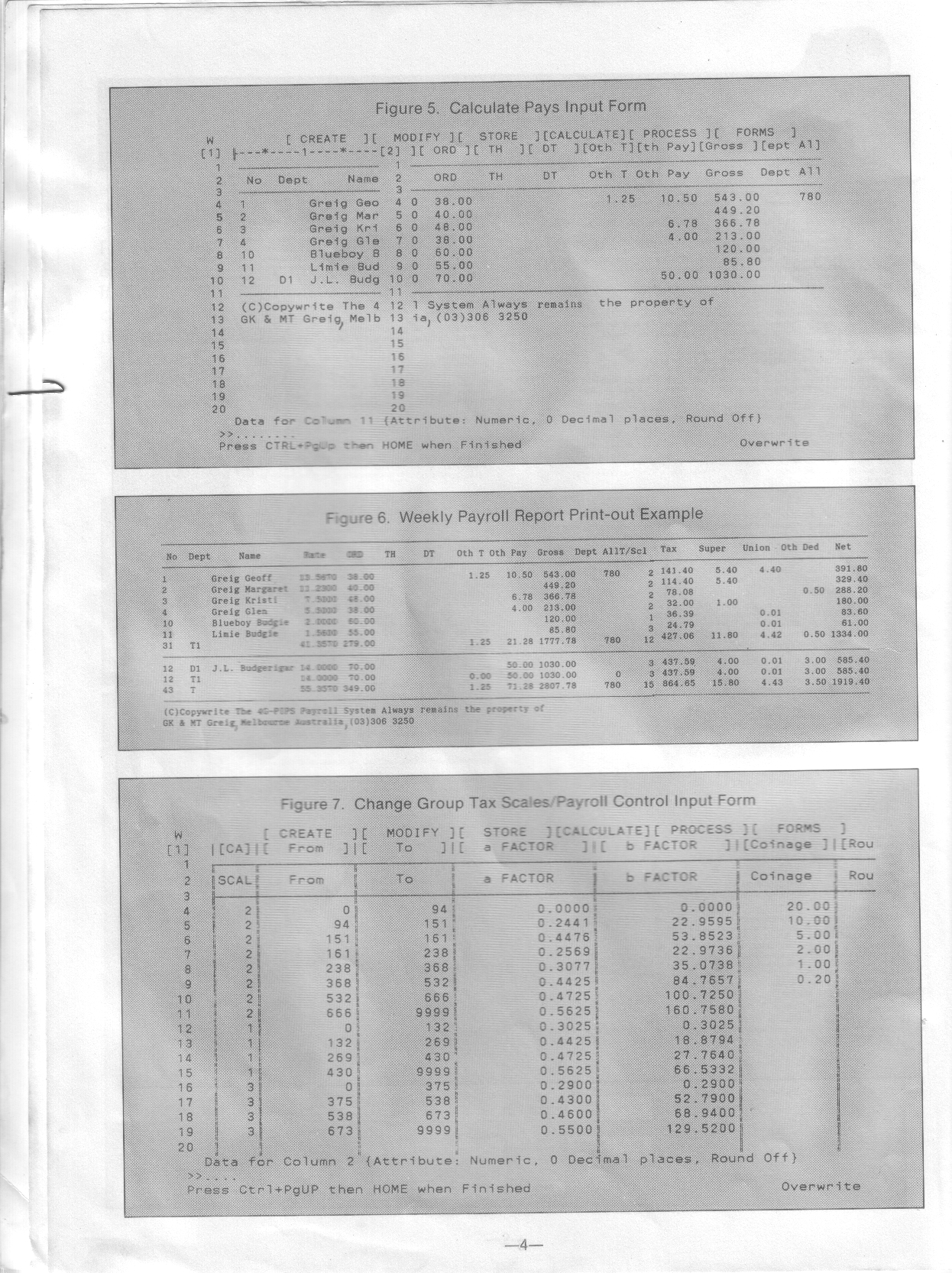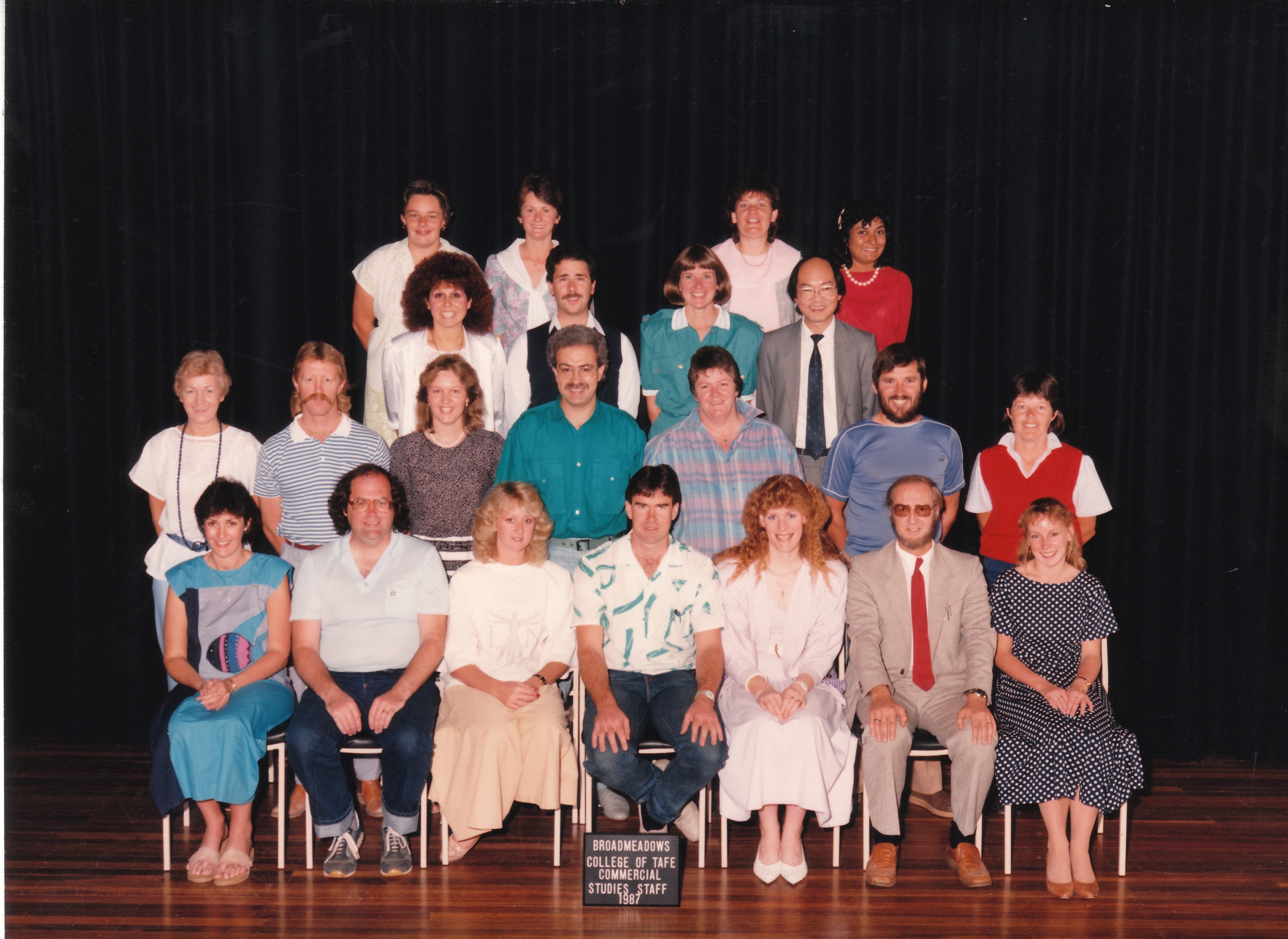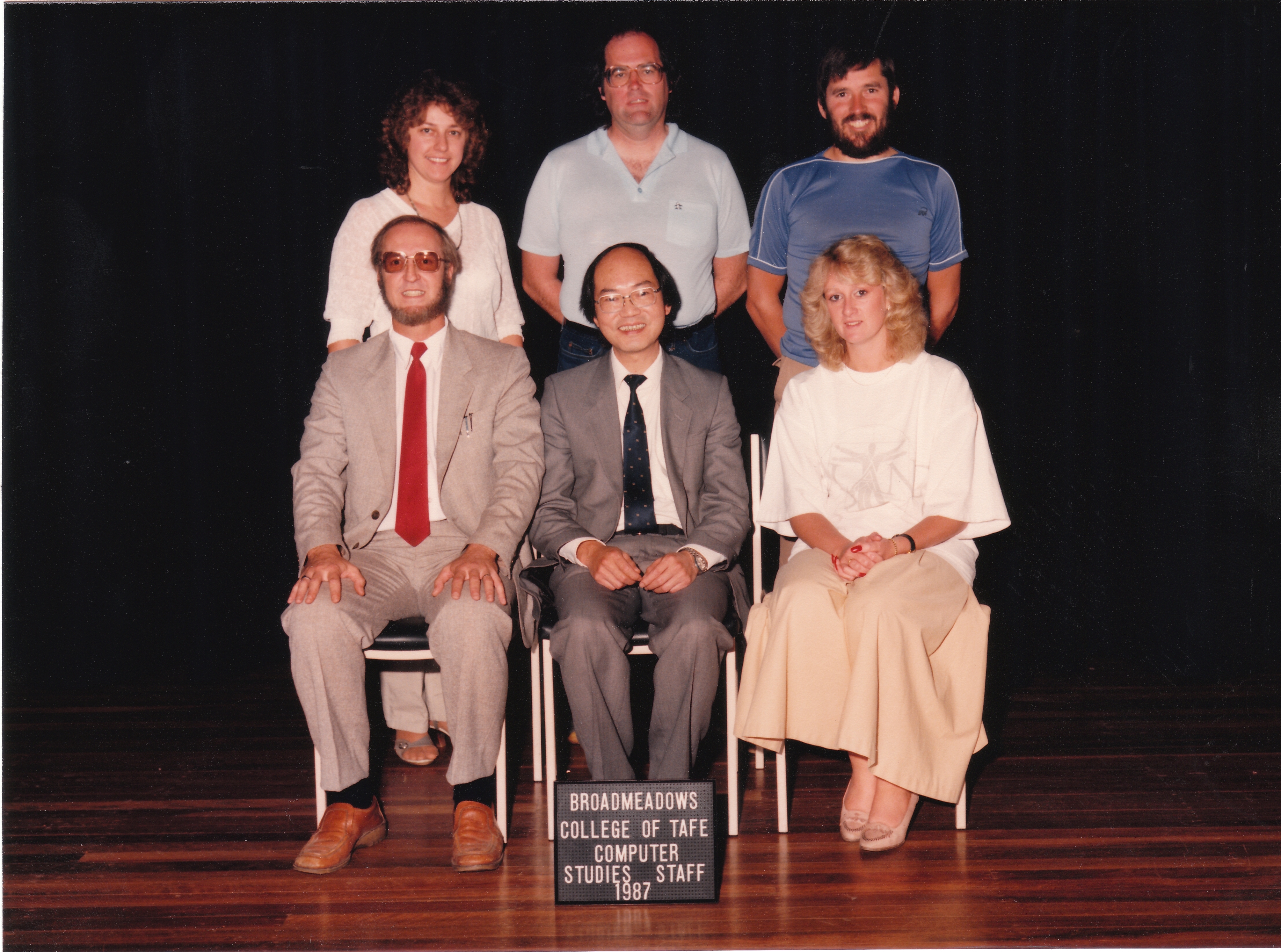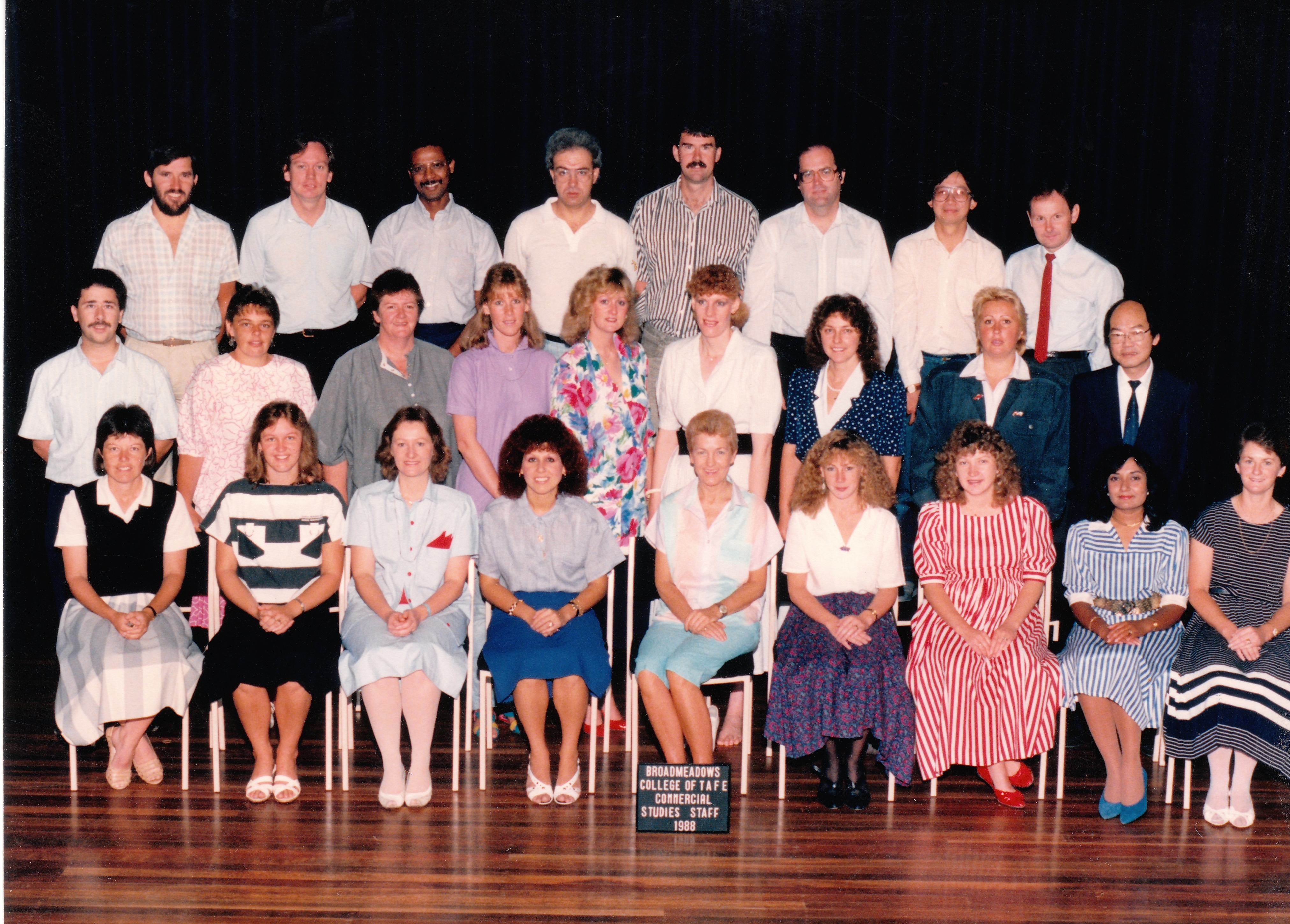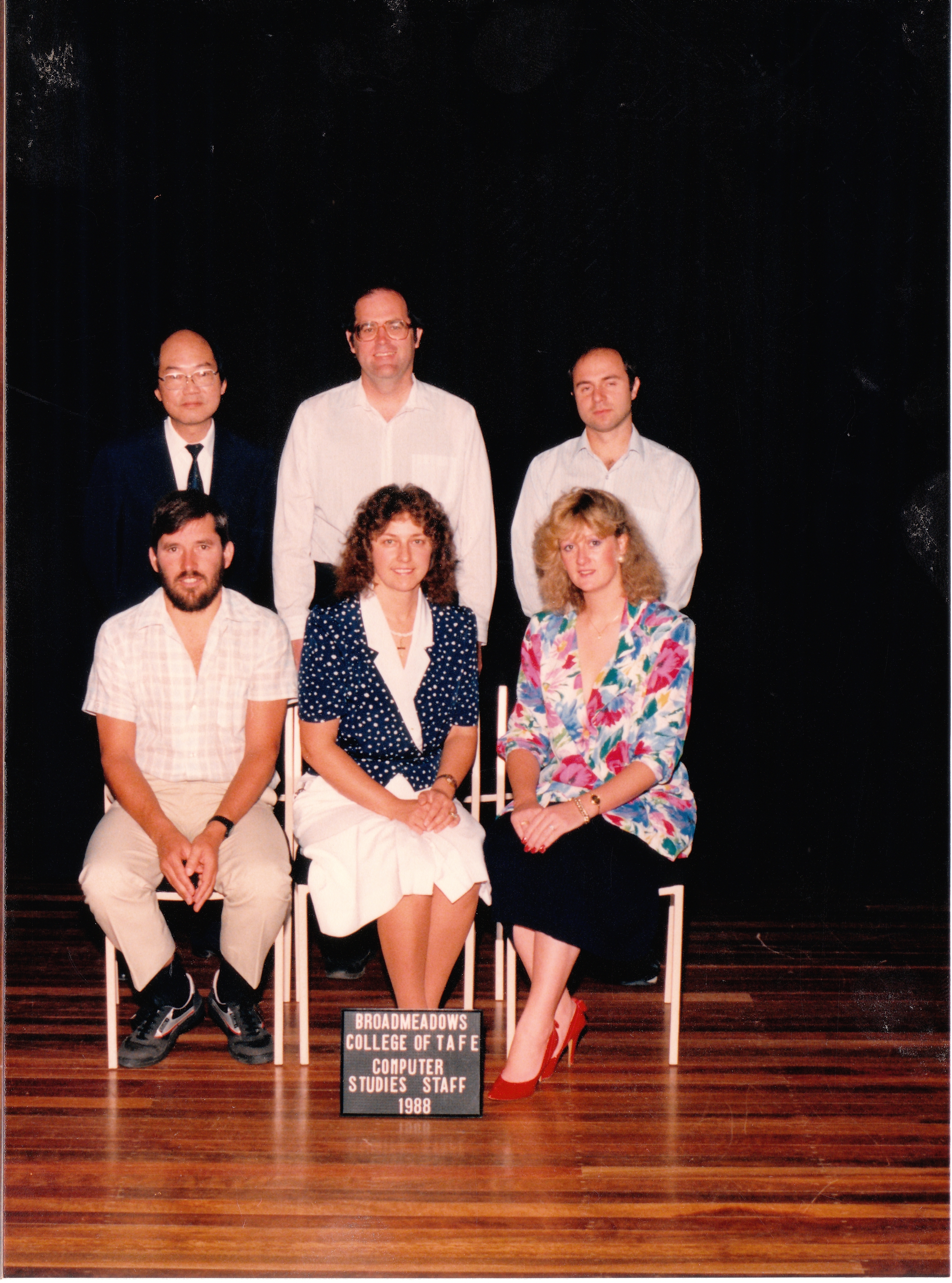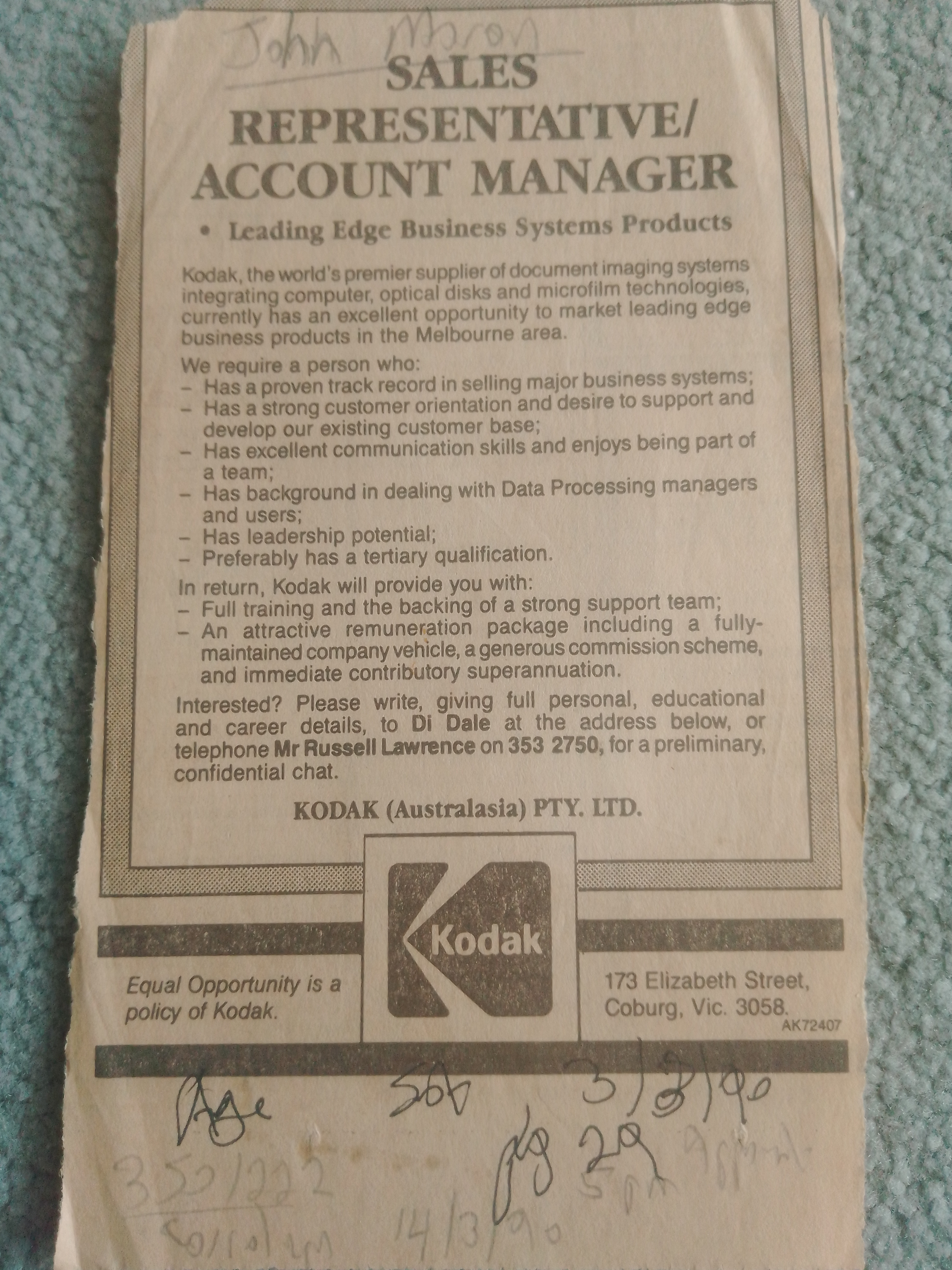Table of Contents
My work life
This is not written in strict chronological order as it is based on my lack of memory and that I often had multiple paid jobs at the same time or I would be working for myself at the same time as working for an employer.
summary of who I worked for and when
See also my education history
Introduction
This is not what people would normally write in a resume. The purpose of a resume is to be able to get you a job. The purpose of me writing this is to have a record of what I did in my various employment situations. That sort of thing is liable to not to get me a job. I have no intention of ever getting a future job.
The paid working part of most peoples life is only 11%
Pre full time
Four year old
Although I never got paid for it, whilst writing about my education I realised I was an entrepreneur when I was four years old.
First Paid
Most likely the first time I got paid for work was when Alex and Irene Tseberg, down the road, and I got together and we went around mowing lawns for people so that we could get some money to buy firecrackers on Guy Fawkes night.
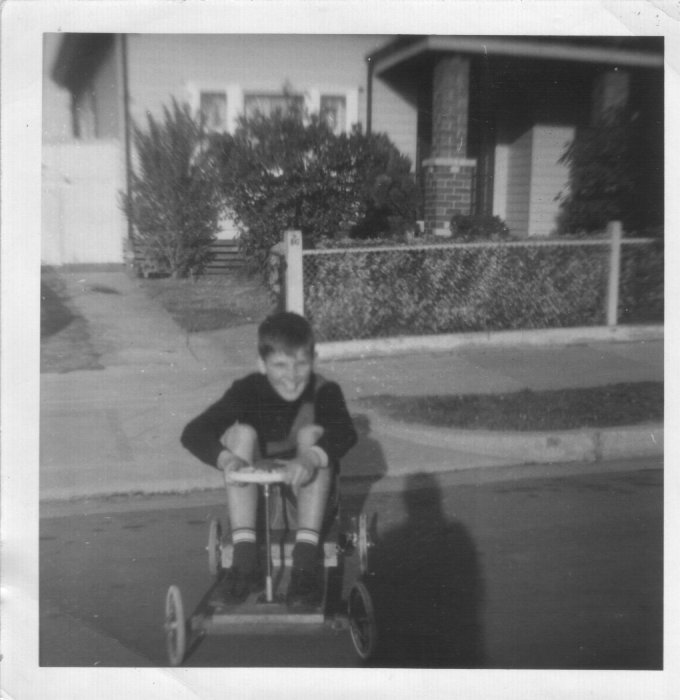 Me outside Alex and Irenes place about that time.
Me outside Alex and Irenes place about that time.
This started a small business for myself cos afterwards I went around not only mowing lawns but also washing cars for people, so I could earn money. So right from the outset I can say I was self employed.
I would walk around the streets look at a person's front lawn and then go in knock on the door and say would you like your front lawn mowed for such & such money. Or would you like your car washed for such & such money. It wasn't a thriving business but it gave me a little bit of poket money.
I realise now that I was an entrepreneur from the point of view that I was setting the price and determining what work had to be done. This happened when I was about 10 years old.
Hardware store with Dad
Dad got a job working for Mr Quick, who he met via The masonic Lodge, working in a Hardware store in Banyule. I think at weekends. I used to go and help him. Not sure if I got paid.
What I distinctly remember was the Dad would always leave the Till open with the one and two cent coins left in it. He told me that it was better to do that because if somebody ever broke in, they would not damage the Till by trying to unlock it and would often be happy with just the one and two cent coins and so not destroy something else.
He also taught me that they would have a alphabetic code written next to the price tag of every item.
The alphabetic code was some sort of 10 letter saying that when converted would represent the cost price of the items they were selling. That way they new the margin on all items, should somebody want a reduction in price.
Grocery store in Bunboora

Visyboard
As was common at the time, during the Christmas break we would get jobs for a few weeks to earn some money. Mr Maulders,who live opposite Aunty Gwen and Uncle Norm had just got himself a job working for Visy board in Reservoir.
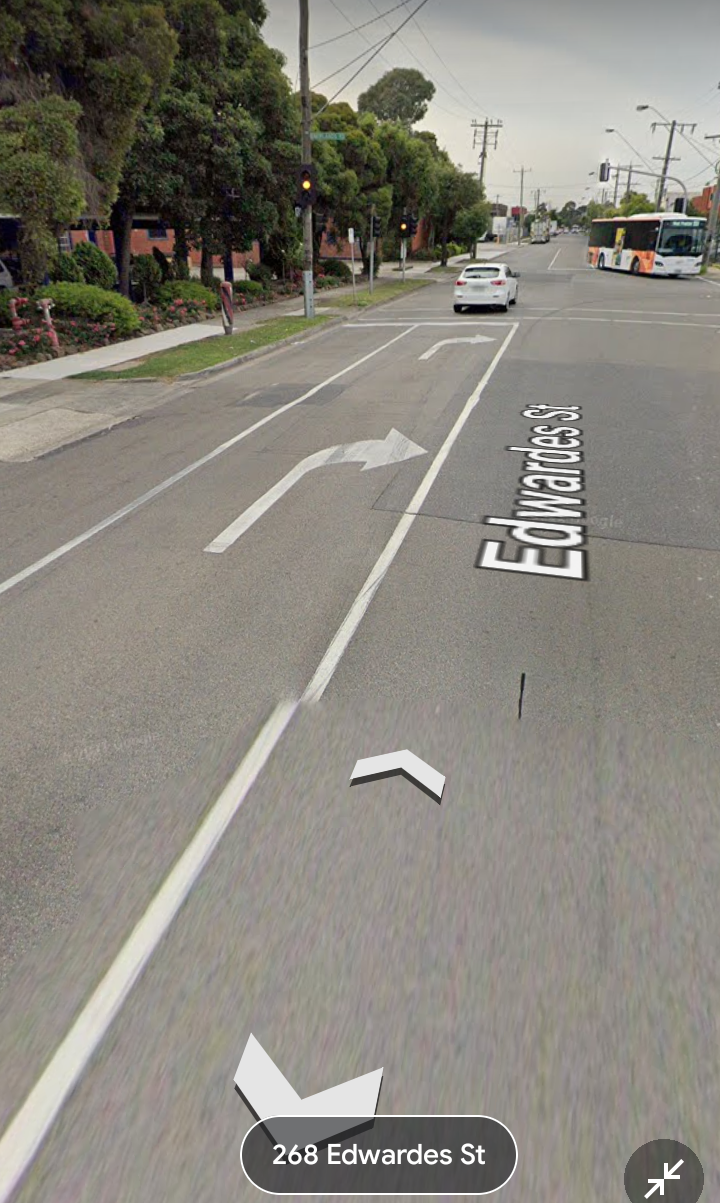 The factory seems to still be in Reservoir
The factory seems to still be in Reservoir
He got me a vacation job working in the Visy board factory on a cardboard box making machine. I and another person would stand at the output of the machine, whilst the flat carbord sheets would come out. When there was sufficient of them we would stand them up then lay them down on a pallet, that was on a trolley. In those days there was no protective equipment, I would get paper cuts all over the palms of my hands.
For some reason or other ther was a power strike during that period of time and we were all laid off. Mr Maulders rang me at home and told me to go to work. I did so be riding my bike from Watsonia to Reservoir. The job they got me to do during the power strike was to glue spongy rubber on either side of cutting blades, that were on some sort of board. It was used to cut out cardboard display packaging that was not the traditional rectangular box shape. Unfortunately after the strike I went back to the original task where I was getting the paper cuts on my hands.
The factory obviously knocked off a little bit before the office staff and I remember Mr Maulders putting my bike in the boot of his FJ Holden car to give me a lift home, after he found me riding home, up plenty road.
Quick Plumbing
Dad worked at Quick Plumbing. He nu Frank Quick as they were both members of the same masonic Lodge.
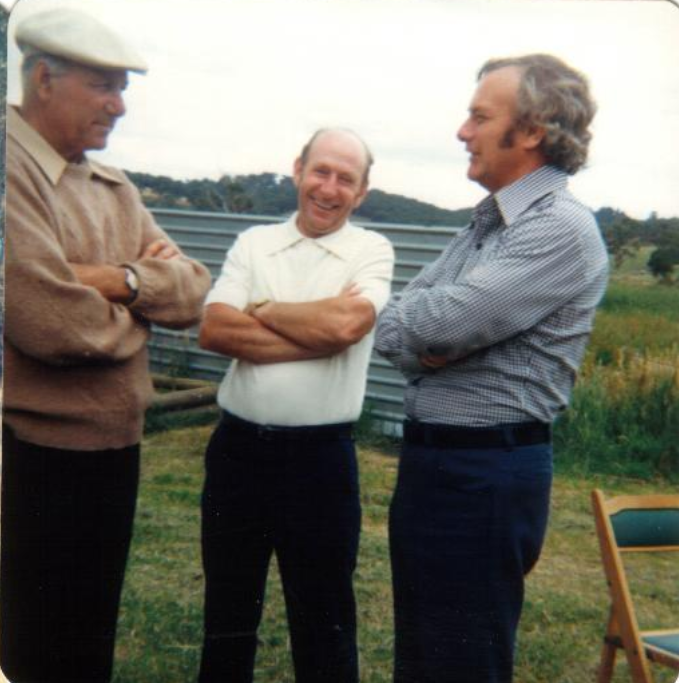 Frank Quick,Dad and Uncle Norm
Frank Quick,Dad and Uncle Norm
Dad was a storeman come purchasing officer. Quick Plumbing appeared to have contracts to do the plumbing for some of the larger building contractors such as Jennings. I think they might have employed, going on, a 100 people. Originally each morning the plumbers will come in and ask for various plumbing fittings to do the job they were doing that day.
As the houses would pretty much standard, I think it was Dad, came up with the idea of bagging together all the fittings that were needed to do various parts of each job. Like the plumbing rough in, when the house was a framing stage, and the finish off, when the taps were put on after the plaster walls had been put up. Ther were lists of all the required fittings that was required for each house address.
At the time I think I had just started at Preston Institute, so was able to do some work when I did not have sheduled classes. I would get a plastic bag and put the required fittings in it for each house. I was a minor, working part time, so they did not have to pay me to much.
When the plumbers came in eack morning all they had to say was the job address and if it was a roughin or finished off and Dad would give them the appropriate bag of fittings,as opposed to getting ever fitting one at a time.
I don't think the plumbers liked that way of doing things because they would complain that sometimes fittings were missing when it was most likely they had lost then from there truck. Also they probably didn't like it because previously they would just ask for whatever fittings they wanted and possibly use some of them on ther own home or on plumbing work they did the other people.
The benefit of working there was that I learnt quite a bit about plumbing fittings and how plumbing worked and in later life was able to do all of my own plumbing including all the plumbing for our holiday house in Heathcote.
A distinct memory I have when I worked for a quick plumbing was that they employed a General Manager to run the whole place. He even got a company cars part of the deal. After he had been there for some time, one day the police arrived and took him to jail. Turns out that he was a crook and was wanted for probably fraud or something like that in another state.
That taught me always to get references from people and check them out
Mower/ Motor bike shop Diamond Creek
When I had my Yamaha 180 motorbike I got to know a guy at the motorbike shop in Macleod. He later started a mower and motorbike shop in Diamond Creek.
He employed me on an hourly basis to do some mower repairs. Not bad considering I had no qualifications and had only pulled apart and reassemble a few mowers at home.
I was not very good at it, it would appear, because once someone came in and wanted new blades put on their mower. I use a screwdriver through the air cooling fins of the mower to stop the base plate from turning so I could undo the old blades bolts. I obviously damaged something because the guy ended up bring back the because it wouldn't work.
The guy that owned the shop told me he only preferred to sell mowers if he got a trade in. Overall if he got a trade-in he would make more money than just selling a new mower without a trade in. He explain it to me at the time and I can't remember how it worked.
Eventually he got somebody else to work for him, because he realised he was praying me too much per hour.
The business eventually went broke owing a lot of people money
After that a guy who lived down the road from us in Watsonia took over the business and I negotiated with him to be able to sell motorbikes. Commission only. But I never sold one.
Rawleighs
After leaving high school and going to Preston Institute of Technology I realise I needed some money to put myself through tertiary education so I looked around and found an advertisement in the paper to be a Rawleighs salesperson.
I have previously written about Rawleighs here
As a consequence of being a self employed salesperson selling Rawleys products I had to do my own business tax return. Something that I continued to do for many years. It's only in 2021 that I stop doing tax returns.
Fulltime Jobs
After meeting Marg at the Grovedale Hotel in December 1971 and going out with her for just under 12 months we decided to get engaged.
Noing we were going to get married at the end of 1973, we decided it would be best if I got a full time job. I started looking at the beginning of 1973
I wanted to get a job in the computer industry, as that was my passion. At that time, they wanted people with either qualifications or experience. Of which I had neither. I remember going for a job as a computer programmer with a large well known clothing manufacturer that I think was in Sydney road Brunswick I think they made socks perhaps it was Holeproof Hosiery. Being non qualified and with no experience in programming I didn't know what to say. Other than I had learn COBOL.
Also remember going to the big long Green building in Spring Street, I think, Melbourne, called the Commonwealth Centre to do an aptitude test to become a programmer in the Commonwealth public service. There were hundreds of people going for only a few jobs. Of course I did not get one, as my programming aptitude wasnt as good as others. Which by the way doesn't mean to say youre not going to be a good programmer. Aptitude for programming is only one of the criteria that makes a good programmer.
Remember ringing up or going to ICL and asking them for a list of who had ICL computers in Melbourne. And they gave me the list. No way known that would happen today. I rang them because I had learnt to program on an ICL computer whilst at school
There was only about 10 business that had ICL computers in Melbourne, if that.
Again that didn't lead anywhere because of that my lack of experience or qualifications.
On reflection it shows how good a salesperson I would have been. I should have looked for a sales job selling computers.
I gave up looking for computer programming jobs and started looking for accountancy jobs. Ther were heaps of them around that were not after people with qualifications or experience, and were even willing to give you half a day off a week to attend school.
I went for a few interviews. Most in the CBD with employment agencies. I remember being at Spencer Street station and ringing Marg and her telling me that there was a job advertised for a trainee accountant in Coburg with Gadsdens. I rang straight away and arrange the time for an interview. I think it might have been the next day.
The guy that interview with me was the assistant cost accountant. I forget his name but I remember he used to play football for Macleod Rosanna. For some reason or other he also knew my cousin Robert Pedderson.
After the interview he rang me the next day and said I've got the job.
I started on $70 per week. I remember Ray was a bit pissed off because he'd been working for a number of years and was earning less than that. This was the beginning of the time of wage inflation.
Gadsden
My position at Gadsden was a Trainee cost accountant.
Transcribing
What I did a lot of the time was transcribing information from one piece of paper to another. When I first started they were doing the factory budgets. These consisted of, usually, 14 money column paper. What used to be called spreadsheets, before the advent of the computer equivalent.
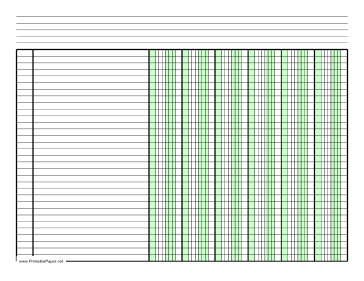 The blank ones looked something like this
The blank ones looked something like this
Categories of items down the left-hand column and months across the top. The rightmost column was the total for the year and the bottom row was with total for that particular sheet.
Calculators
Behind where I sat was desks with females using electronic calculators with a short keyboard. They would do what was called a cross and down add of each sheet to see if the figures that I had transposed from another sheet were correct.
Those calculators must have been the first of the electronic ones. They about twice the size of a typewriter and had a small, about 4 inch, CRTscreen. I get the impression they where valve based. But based on the below photo perhaps not.
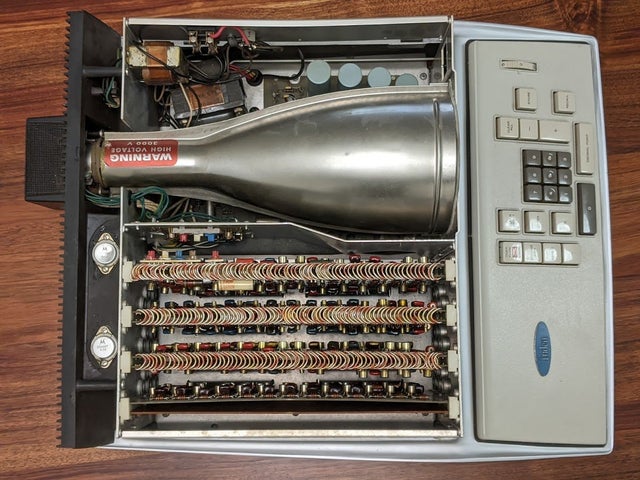 One of world's first electronic calculators, Friden EC-130, with CRT display and mechanical keys ($2100 in 1964, about $20,000 today). Probably the ones they had at Gadsden. Photo from https://www.reddit.com/r/EngineeringPorn/comments/j64h84/one_of_worlds_first_electronic_calculators_friden/
One of world's first electronic calculators, Friden EC-130, with CRT display and mechanical keys ($2100 in 1964, about $20,000 today). Probably the ones they had at Gadsden. Photo from https://www.reddit.com/r/EngineeringPorn/comments/j64h84/one_of_worlds_first_electronic_calculators_friden/
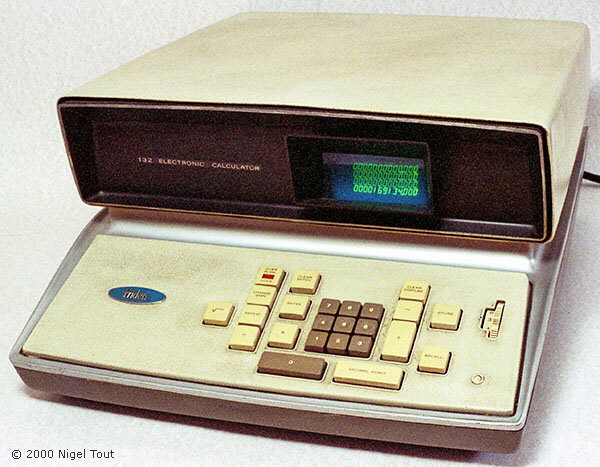 From:http://www.vintagecalculators.com/html/friden_ec-130_-_ec-132.html
From:http://www.vintagecalculators.com/html/friden_ec-130_-_ec-132.html
The guy I was working with had a electromechanical calculator on his desk. I think it was a Burrows brand. It had what was called a full keyboard. That is eack of numeric digit was repeated left to right multiple times. Perhaps nine times. To enter the number 123 you would have to press the one key in the third column from the right, the two in a second column from the right and the three in the third column from the right.
It was capable of doing multiplication and division. It did so using its electric motor to turn over its cogs the number of times of the function. Like to multiply a number by 10 it would just click over the clogs 10 times.
For fun sometimes would put in, 111111111 and divide by 999999999. The machine would just continually turnover. Luckily there was a cancel button or I think you could just switch it off.
One time it ran for so long that smoke started coming out of it. We were not sure if it was because of all the rubber from the erasing of numbers on pieces of paper that might have been stuck in it, or it was just the motor starting to burnout.
Factory Piece Work
Nothing I had learnt at college about cost accounting prepared me for what I was doing.
Of most interest to me was going through the factory to see how the machinery automatically made cans. Particularly the high speed beer and soft drink can making lines. The cans used to move so fast that they were just a blur to watch. In those days they were made from tin plate rather than aluminium.
For non beer and soft drink cans the process was more manual. Having a group of people doing different parts of the can. Often people would be paid on the basis of how many pieces they made. It's called piece work.
Ther was a whole section called industrial engineers. What previously used to be called time and motions study people. Later, with the advent of computers and in office automation, they were called Systems Analysts and Business Analysts. When any new process came along they used to get a stopwatch and time how long it took to make each piece of a can. Of course the employees knew about this and would deliberately go slow, when being timed, knowing they could later go faster so make more money, because of the piece work payments.
Because they were being paid piece work,if they worked as a group and somebody did not keep up the speed they would demand that person be replaced. And a person would be replaced.
Whenever I walk through the factory, I could always tell when they were being paid piece work, because they would work so much faster.
People
I cant remember the names of the people I work with. But some I do remember we're Fred Martin, he was the Cost Accountant, Milton Embling the Chief accountant and Bob Kelly, a trainee cost accountant like me. He started after I did.
In fact quite a few people did. It was the times of wage inflation when it was easy to change jobs and get more pay.
Bob Kelly was quite a sociable character. He had been working for a number of years for a different manufacturing company and he got married quite young and bought a house, in, I think Research. We went to his place once. Years later when I was working at Chantaneale I discovered him working in a accounting position at Visyboard. He told me that Fred Martin also was working there.
A guy, KU was employed as the budget account. Attribution to soldier 59 (not his real name) who gave me that information. KU was getting paid more than us trainee accountants because he was fully qualified. After he had been working a few weeks we noticed he dident go to morning tea with us anymore. He just kept working at his desk. It turned out that he wasn't doing his job to the level of satisfaction that they expected. Most likely because they were comparing him with us training accountant who happened to get most of our work done very quick. He was just a bit slower. It wasnt his fault, it was just the way he was. He ended up getting the sack with Bob kelly taking over his position.
From that I learnt that qualifications are not an indication of how a person can work or ther suitability for a particular position.
We later ran into KU at Myer Northland and he was then working for BHP controlling ther import and export shipping. A job he seemed much more suited for.
According to soldier 59, his family used to live in the street next to them. EU, KU's sister-in-law, was a teacher at PIT when I was ther.
Morning tea with cakes, Special on Birthdays
Each day we would have morning tea in the lunchroom. Someone would come around with tea and coffee trolley. Not sure if you had to pay for it. But she also used to sell cakes. Lamington and vanilla slices.
Whenever it was anybodies birthday the birthday person had to buy cakes for everybody else.
I remember going out to Ferguson's on the corner of Sydney road and Bell Street and buying cakes for everybody on my birthday.
Lunch Friday afternoons
Each Friday we will go out to lunch at the reservoir Hotel I think it was called the lakeside. We only got three quarters of an hour for lunch and it used to take about 10 to 15 minutes to drive there so we are had less and half an hour to order and eat lunch and have a few beers.
Not much work got done after lunch time on Friday.
They had EDP centre with ICL computer
Gadsdens, being a reasonable sized business, with multiple locations throughout Australia, had a centralised EDP department with an ICL, I think 1902, computer. I remember it was in West Melbourne because once we actually visited them when we took all the input for the stock take.
There was a whole section that set the behind us that did the input for the computer. But it was all done on paper and was obviously key punched elsewhere. One Guy ther was Tony, and some Italian name. He was a person to have to walk with walking sticks because I think you've previously had polio. He used to play wheelchair basketball with Bob Kelly
Then every now and then we'll get great big thick print outs, about 500 mm thick of results.
During stock take it would be even more input and printouts.
At one of the stocktakes the external auditor had comptometrist check all the addition of computer printed stock sheets and found one mistake. Turns out to be a overflow problem. The size of the variable to accept the accumulalated value was to small to accept the resultant figure so it just truncate the first digit of the value.
I'm sure Auditors would not check calculations on printouts today
What happened to Gadsden
According to this article the Gadsden brothers, Bruce, Lindsay and Ronald, sold their share of J Gadsden Australia to SA Brewing in 1986. I no that Visy packaging at one time had ther name on the factory in Charles St Coburg. The Google Street view still shows that:
Crockford and Robertson
Getting the Job
As I've said before this was a period of big job inflation. The best way to earn more money was to change jobs.
Because I have not been promoted at Gadsdens even though I had applied for another position there, I figured it would be best to get another job. I Look through the local paper and there was a job as a cost accountant, with Crockford and Robinson.
As was the situation and those days you didn't write an application and send a resume, you just rang them up and went for interview.
I was interviewed by Glen D. He was the Financial accountant.
Because I had worked with a bill of materials system at Gadsden and was able to articulate how it worked he Offered me job then and ther.
They also had a chief accountant. I don't no what he did. At one point he did not want me to no ther overhead cost because if I new that I could have work out what ther profits were. They were a private company and appeared a bit paranoid about people knowing too much information about them, financially. Most likely because they weren't playing the correct taxation, based on ther profits.
They were into most things to do with heating and air conditioning.
H i
Job Costing
They had contracts division that installed heating and air-conditioning for mainly commercial premises. The first thing I did was to write up monthly reports on the completed jobs. Comparing them with how much they had quoted the jobs for. The report was sent to the General Manager, I think majority owner of the business. I used to express things in percentages as well as dollars which he may not have understood as I never got and feedback from him. He came across to me as a not particularly smart guy.
He had an external accountant who perhaps was the real brains behind the business. It was a good experience for me leaning about job costing as I later used it in my own business and also wrote job costing programs. I get the impression that the estimating department did not like some of the comments I made when some of the jobs went over the estimates as they would come and go through the ledger cards for them.
One job never came to end. It had a great stack of ledger cards. It was for a private residence. Ordinarily this should have been classified as income having been receiving from the business, so subject to tax, but instead it was classified as a tax deduction so decreasing the profit, and so the tax that had to be paid. I remember the chief accountant saying that those ledger cards will have to be lost some how. Nice to be able to increase the value of your own house at no out of pocket cost and make a capital again. There was no capital gains tax in those days.
Main work
The main thing I did was working out the cost on new items they were developing. They developed what looked like a rocket on it's side that basically just heated air with the exhaust fumes came out of it. It was designed for heating large areas in open environments.
Mrs Fern
Mrs Fern was General Manager's secretary. She was the sudo boss of the place and everyone was scared of her. I wrote a letter to one of their US suppliers and refer to him by his first name but I was told I wasn't allowed to do that because I did not know him. I guess she was very much old school. Strange at one stage she had her own secretary. Secretary for the secretary.
Capital expenditure justification
Because I had done capital expenditure justifications at Gadsden I did one for the purchase of a telex machine. I think it had a payback period of well less than a year and return on investment well over 100%. But that was on the assumption of the use of the telex communicate between the sydney and melbourne office rather than a telephone. To the supprise of the other accountants the proposal was accepted and they got a telex machine. Unfortunately i didnt stay there long enough to see if it actually didn't provide that return on investment. Most businesses never measured the actual return on investment, compared with the forecast one.
Ledger machines to Computers
They had Ledger Machines and we're thinking of buying a computer. Ther was mob in Grange road that had a computer, like they were thinking of buying. Perless emolotions i think was ther name. We went and had a look at it. I remember reading the brosher material about it. It was all American software, that had not been adapted at all for Australian conditions.
Service division
Because they had some staff problems at various times I remember at one stage helping out doing some invoicing for their service division. I was amazed the number of calls they got for oil heaters that had simply run out of oil. Of course they would charge a substantial service fee to tell the people there's nothing wrong with the heater it's just run out of oil. Like taking your car to the machanic and them telling you it's out of petrol and giving you a bill for a few hundred dollars for the privilege.
They had quite a few service vehicles probably 30 or 40. I remember ringing some oil companies to see if it was worthwhile getting a tank and Bowser so that they could buy the petrol in bulk.
Friday lunch
Because I was used to going out for lunch every Friday at Gadsdens I took that same tradition with me when I went to Crockford and Robinson. Before I arrive there no one went out for lunch. I eventually got all the accountants and other staff to come out to lunch with me on a Friday at the Grandview Hotel on the corner of station Street and Heidelberg road.
Factory Manager
I spend a lot of time talking to the factory manager as he had to tell me the process things went through so I could work out costs. He left whilst I was ther and went to work with someone else but then passed work back to Crockford and Robinson.
Cash forcasting
Ther must have been a point where money was tight so I had to do a cash flow forecast. Don't know why it came under cost accounting, because it was more likely financial accounting Every time a purchase order was written out it went past me and I recorded the value of it so it would be known when the money would be needed. So I learn all about cash flow forcasting before I learnt it at school.
Calculators
I would often talk to a consultant they had working for them about calculators. Each time he went overseas me would bring back a smaller and smaller one. Calculators were the in things in those days.
Why I left them
I left them because it was compulsory to take 2 weeks holiday over the Christmas break which I didn't want to do. I didn't want to waste my holiday time when everybody else was taking holidays.
BASF
How got Job
Because I did not want to be told when I could or could not take holidays, at Crockford and Robertson, I looked around for another job. Jobs were very easy to get in those days. I applied for a job as a cost accountant via a employment agency. This was the first time I had gone through an agency. Turns out the one man band at the agency was a guy that was a friend of the MD of BASF Australia. Definitely a boysclub situation. The agency guy told me that the MD had got to the position he had by being a diligence hard worker. Probably assessing how I felt about that.
The second interview was with the Finance Account and Cost Accountant at BASF who were located in the Blue building at the corner of Wreckyn St and Flemington Rd North Melbourne.
Part of the interview was also with the HR manager. Again this was the first time I had been interviewed by multiple people. It was a sighn of things to come in the future.
The HR manager said at the beginning, that at the end of the interview he would ask me if I was interested in the job. He did so and I said I would accept the job, to which he said, they were not offering it to me but wanted to no if I was interested in it. Yet again something I was not used to. Cant remember when they offer me the job, but I took it. I actually got a formal offer letter.
What they did
At the time BASF was reasonable well known as a producer of audio cassette tapes. But ther main business was in chemicals for which they had a manufacturing plant in kororoit Creek Rd Altona. The main thing they made ther was Polly styrene. The raw form of it that is small hard little ball shaped items. When these has steam applied to them, they turned into the soft white balls that most are familiar with as being Polly styrene balls. Those ball are then put in a mould, again with steam, to make the Polly styrene sheets or packaging. Or just put into a material bag to be used as bean bag seating.
They also made some other chemicals
The base material for Polly styrene was styrene that they would get via a pipeline from Dow chemicals who were right next door to them at Altona It was charged accouding to a meter that Dow chemicals had that on ther side of the fence. BASF had ther own meter on ther side of the fence. Every month ther was a difference between the 2 meters always to the disadvantage to BASF. They would get the meters calibrated but ther was always a difference. Of course that ment big $ being in despite. I never found out how that was resolved.
What I did
Chemicals are in a process manufacturing environment so I learnt about process costing. Just like back in the Gadsden days they had big spreadsheets to work out what the costs were. Hole lot of complicated chemical names down on left-hand side and all the various attributes of the cost across the top. They also had some sort of stock control system and I had a person working for me that used to write up all that.
Converted a 4 day task to 4 Hours
It would take about 4 days to write up all the sheets to work out the cost of each product. The cost accountant, now the senior cost accountant showed me how to do it. After I did it a few times I realise there was a lot of transcription going on specially rewriting all the chemical names down the left-hand side each time. So I photocopied the chemical names and stuck them onp each sheet to save rewriting them everytime. I eventually worked out it wasent even necessary to do that, because I could just have one overlay sheet that had the chemical names and folded it back to see the figures behind it. I also identified each column, I think with a letter, and on each column that had to be calculated wrote the formula required to do the calculations. Then I gave the sheets to a calculator operator who did the calculations for me.
The net effect was in reduced a 4-day task down to about 4 hours and my task down to only a few hours. This was all well before personal computers and spreadsheet software. As I'm writing this I realise I was doing then, what entering a formula in a spreadsheet is today.
When I showed what I had done to the senior cost accountant he did not seem to be particularly impressed. Im not sure if he did not understand how I had done it, was upset that I was able to find a better way to do something that he had been doing for years or was afraid that my way of doing it was going to eventually put him out of work.
This became clear to me when for some reason he had to do that task and he went back to doing it his way that took 4 days.
A few things I learn from that. Most people dont like change, fear that the job they are doing is going to be eliminated and that I was destined to become a systems person that found better ways to do things.
The CEO
The CEO or what they called the general manager in those days, was a bit of old school dictatorial. He came from an engineering background and thought everything was engineering-based. When there was a downturn in the economy, he blamed the salespeople for not predicting it. He specifically came out and said that they should have known about it. He obviously had no idea of economics or sales.
We used to have monthy company wide meetings on the floor above us which was not air conditioned. But regardless that we were having a heatwave we all had to wear suit jackets to the meetings. When the heat became intolerable for him he did say at one meeting that gentleman could take their jackets off.
Stone meeting he stated that a number of people would be getting the sack because of the economic downturn. He also said that anyway we could save money could save somebody's job. After his sacked a whole lot of people, when he went to Sydney he hides a chauffeur driven vehicle to drive him around. So much for saving mone. Or perhaps it was a do what I say not what I do.
They had a in house Computer
BASF had ther own in-house computer. What was called an IBM Mainframe. As typically in those days it was in its own area and seperated from everybody else by a glass wall. The basis of which I later wrote about The invisible glass wall.
A sales person from Olivetti turned up one day and left BASF what a personal computer. A Programma 101.
They never bought it, most likely because they thought something so small, and relatively cheap, would not be able to do what ther, physically bigger, IBM computer could do. I did not realise I would end up working for Olivetti a few years later.
Ther was a guy called Peter who worked in the computer department (they didnt call it IT in those days) as a computer operator. He had some sort of eyesight problem which meant he had no peripheral vision and had to wear special glasses with a large sticking out lens just to read. Apparently he stuffed something up so rather than finding out why, they just moved him into the accounts department. I had some good conversation with him. He was a smart guy that they did not no how to handle. When they had the downturn in business he got the sack. Often wonder whatever happened to him.
Downturn
Ther was an economic downturn. We all went to a meeting where the Managing director said that they would have to lay off staff, and he put the full responsibility for that on the sales people because they did not predict the downturn. The Guy came from an engineering background and appears to have thought that the economy and so sales were in some way predictable. Wonder if he thought the same way in his later life.
Fortunately I was not layed off. However a person that worked for me, was. To be precise, he got the sack because some money had gone missing from the Socal club, and he was the one that took the fall for it. His position was not replaced.
I was now expected to do my own work as well as his and the deadlines were brought forward.
At the end of each day the chief financial accountant would put his bag on his desk as an indication that he had not yet left for the day. He would then go down the pub. He would never leave before the MD, who always left late. Most of the Accontants did this. I always left at normal finish time.
I noticed that they never did much work during day or even if they did they would spread it out so much that they had to work late to get it done. All to impress the MD.
There was a time of year where the budgets had to be done. The cost accountant said we will do them after hours. I said I was ready to do them then, in normal hours. Come knock off time I said I was going home and that if they could not organise things to be done in normal hours that was ther problem, not mine. I was given a talking to about if I wanted to advance in the company then I will be expected to work as they did, and that all business worked that way. This had no effect on me. Other than I started looking around for another job.
Because my position was that of an executive, I was not getting paid overtime. The next job I got I was getting paid more money and I got paid overtime.
They obviously stuffed up who they were going to put off because one of the people they did put off they ended up having to re-employ. But in doing so they sent her to the one person employment agency (mate of the MD) who had originally interviewed me. This was at a time when supposably money was tight and the MD had said any money it can be save may mean a persons job. This same person that was re-employed did the accounts payable and pointed out to me that the MD, when in Sydney, would be chauffeur driven around, rather than catching taxis.
From all this I learnt that there are people that will say and do things pretending that is in your best interests, when in actual fact, it is for their own.
Quit or got sack
Even though it was supposed an economic downturn there was still plenty of jobs going around for accountants. I remember going for one at Willoware. After the interview the guy rang me up, at BASF, as we did not have a home phone at that time, and asked if Id be willing to have a haircut before I accepted the job. To which I asked, what has the length of my hair got to do with my ability to do the job. Nothing came of that.
I had an interview with James Hardie and was offered a job as a trainee cost accountant. A reduction in name of position, but it paid more money than what I was earning and also I would be being paid overtime.
I told the people at BASF that I was, as per the award, giving them 4 week notice but was going to take 3 weeks leave would come back to work for a week and then would end up. They had to refer that to the personal department. I had a meeting with the personal manager who said he felt that I would not come bach after the 3 week leave. I felt slightly afronted that he thought that of me and told him so. He said I could finish up there and then. I asked what was the consequence of that to which he said, you will find out. The consequence was that I got paid 4 weeks pay in lieu of notice as well as my holiday pay, another 4 weeks. So I was 4 weeks pay better off whereas BASF where 4 week of my pay worse off. With the process we were able to buy a new fridge and a colour TV.
I was quickly starting to learn that even high-end executive business people are not particularly smart.
James Hardie
Found this History of James Hardie from the James Hardie web site. The way they report it does not tell the full story.
James Hardie manufactured and sold asbestos building products.
When I first started there I was not aware asbestos presented a health risk. Other employees I worked with told me about it. There was never any company acknowledgement, whilst I worked there, that breathing asbestos fibres was a health risk. During the 2 years that I work there a number of people died of asbestos-related diseases. I've since had a number of lung x-rays, with no sign of asbestos related diseases showing. Fortunately I spent most of my time working in the office and spent very little time in the factory.
What I did
As I said elsewhere my position was of a trainee cost accountant. The title didn't bother me as I was earning more money than I had been earning a BASF and I was also getting paid overtime.
Basically is all just clerical work. I started in labour costing. Unlike other jobs I had I was now a small cog in a big wheel. So I never got to see how the whole of their costing system worked.
A certain morning someone, and sometimes it was me, would have to go through the factory and pick up all the timesheets. Those were a record of the amount of time each employee spent on particular tasks. Can't remember but I think they had over 1000 factory employees.
The whole of the costing department would spend half a morning reconciling those timesheets with the employee clock cards. The total hours work for each employee task would have to be totalled each day. As a consequence I and all the other costing staff became very efficient and adding up hours and minutes manually.
They had a whole data entry department to key in all this data. It was then sent off to a bureau where they processed the payroll and also the costing information. I have no idea what bureau service they used other than one day a person arrived to discuss any problems we may been having.
Some time later I would get a great wad of printouts and do something with them so it was entered into the manual costing system. I have no idea what the system entailed. I never got to see the bigger picture.
When I first started I was trained how to do the job. I'm not even sure if the person who trained me nu, how what he had been doing for a number of years, fitted into the bigger picture.
Normally I would have wanted to know that sort of thing. Perhaps because of the experience I had at BASF, that I was just happy to do a task and get paid for it. I also think this was the start of the time when I realised I never wanted to be accountant. I was doing a job just to bide the time.
I've also now just realised, this was the time when we started building our house at Sunbury. So I was more interested in building the house then anything work-related.
Location
James Hardie were in Pipe road Brooklyn. We were living in strettle Street thornbury. It was quite some distance to travel. But I did so on my Kawasaki Z1 900 motorbike.
At that time Marg was riding her motorbike from Thornbury into the city each day. One morning when I got to work one of the other guys told me that Marg had rung and said she had an accident on the way to work. I asked him if I should go home to see if she was alright. He suggested I should. Which I did. Marg was ok. The good thing is they did not dock my pay for the few hours work I missed.
Who I Worked With
I can't remember the names of all the people I worked with. Two of them were from Geelong. They would drive up and back from Geelong everyday. One played for the Geelong football club.
Another person played for a VFA team.
I see from the add for the job, above, that I write the name of the accountant that I had the interview with, Dennis Crake.
Yet another person was originally from Uni high school, I think we played against in baseball when I was at Northcote High School
Ron Urmstrong is one name I do remember. He gave me a grease trap that we used at Sunbury. Later he ended up working for I think Wormalds Ray worked at the time for wreckair which also was a division of Wormalds. Ron told Ray that I was not particularly good accountant. He was correct.
Part of a revolving sponsibility was handing out pays. Everything was in cash in those days. When it was my turn I had to be there when they pay envelopes arrived and put them in a safe. Returning later just after lunch break to hand out the pays
Not Diligent
I was not particularly diligent when working for James Hardie as I think I got to the point where I realise I never really wanted to be an accountant.
I Did not relate well with other staff. I felt like an outsider even though I went to socal events, even at another employee house. Also went to a tennis court at some country town as well as the company ball.
It was the longest time I spent in an accounting job, almost 2 years.
Why I quit was because I was not getting any satisfaction out of the job. I realized I had always wanted to be working in computing. But rather than look for another job I simply quit and went for a holiday up to Queensland.
However I do have a recollection of going for a job at Australian Daytronics which I think I wasn't sure whether I wanted the job or not. In retrospect it would have been a better place to work than Olivetti where I went to next.
Computer Sales Job
I'm not sure when I did it,but I got an appointment for a Job advertised as an accounting machine salesman.
It was with Australian Datronics who sold computers. I don't know why they were interviewed me considering I wasn't an accounting machine salesperson.
Geoff Smith was the person that interviewed me. For some reason I I wasn't sure if I wanted the job. I think it may have something to do with the commission structure. A very high commission percentage and low base pay. I remember getting a letter later from Geoff saying he was not going to offer me the job because I was uncertain whether I wanted it or not.
If I had a been a bit more decisive, I probably would have got the job. In retrospect it would have been a better job than olivetti.
Heating Business in Waterdale Rd West Heildberg
It don't no when is was, but I think I answered an advertisement in the paper for an air conditioning salesman. It was a small company operating in Waterdale road West Heidelberg, out of the building that used to be owned by Quick Plumbing. I met the MD who suggested I go with one of their salespeople on a sales call and if that sells person said I was OK I will get the job. Went on the sales call and just was quiet and said nothing. Based on that the salesperson said I was not good enough to get the job and so I didn't. I said to the MD that I should get paid taking up my time. He did pay me some small amount. That was my initial introduction to sales.
The salesperson did not say why I was not good enough for the job.
Airconditioning Co in South Melbourne
Just before starting at olivetti I answered an advertisement for a part time air conditioning salesperson. I was interviewed, somewhere in Sturt Street South Melbourne, by a American guy. He was a top notch salesperson. It was commission only sales. This American guy trained us not only how to sell but also how to workout the cost of installing air conditioning.
On my first sales call I made a sale.
But didn't make any sales after that.
The sales calls were all in the evening at residential properties. They had a separate telephone team that would make the appointments. It was a very slick operation.
Because I didn't want to be going out at evenings, when I got the job at olivetti, I quit the job at this air conditioning mob. I did so by telling the American person that I'd made a decision not to work ther anymore. I distinctly remember him telling me that's very good that you've made a decision because a lot of people are not very good at making decisions. I realised then that I do make decisions. Later I discovered that many people procrastinate about making decisions, and prefer to have other people make decisions for them.
Olivetti
After returning from holidays from Queensland I started looking around for another job and went through a number of employment agencies. I have a recollection of going to an agency in Elizabeth Street and a young girl saying to the person that interviewed me, that ,Olivetti is still looking for someone as a salesperson. I went for an interview down in St Kilda road and was interviewed by PC. He introduced me to the state manager JT. He had an Irish accent. Seems later that he became managing director of Olivetti Singapore. I got the job. Best decision of my whole working career.
Olivetti changed me completely. Working in sales I was virtual self employed. I would make decisions as to what I would do and when I did it. Provided I continued to make sales I was basically allowed to do whatever I wanted. The other great part about the job was I had to go and find prospective customers, meaning I was constantly meeting new people and I was not stuck in an office behind a desk. I didnt realise how much I appreciate that until many years later when I go a desk bound job.
As I was selling to business people I was initially in awe about communicating with then until I eventually discovered that most of them were definitely not as smart as I was. Quite often even high end executives.
At the Start
When I started at olivetti another person started with me at the same time. We both were given some training material, by PC, about how the programing worked on Olivetti computers. I don't no why because it was not something we need to no, to be able to sell them.
The computers we sold were visual record computers. Basically computerised Ledger machines. Ther were 2 models The A5 and the A6. The A5 used a magnetic striped card to store 500 numeric or 256 alphabetical characters of information. The operator would have to put in the appropriate card at the appropriate time. The A6 used 8“ floppy disks, 2, that had a capacity of 280,320 characters each. Consequently the A6 have the ability to print reports completely automatically without operator intervention. However both the A5 and A6 only had a golf ball printer the printed at the amazing speed of 16 characters per second, and sounded like a machine gun when it was printing.
Training
One of the big differences between working at olivetti and where I had worked previously is that actually got trained on how to sell, as well as how computers worked. Us 2 new salespeople learnt that we should show prospective customers the features and benefits of the various parts of the hardware. Like a feature was the keyboard was buffered, the benefit of which was that the operator could enter things on the keyboard whilst the computer was doing something else, like printing so getting more work out of the operator in less time. Or that it had a double and tripple zero key so that pressing the one key was equivalent to pressing 2 key or 3 so saving time.
In more recent times when I spoke to people that sell mobile phones I discovered they no longer talk about features and benefits but more about the lifestyle associated with the phone. Interesting how things have changed.
The guy that started at the same time as me had gone to Melbourne airport and got drunk because he was having trouble with his wife and had pranged his car on the way home. The police arrive and charged him with drunk driving so he was liable to lose his licence as well. As a consequence he also lost his job. I remember Phil Crawford saying the poor guy had lost his wife, his car, his licence and his job all on the one day.
Canvasing
Because I had previously had experienced in canvassing when I use to wash cars and mow lawns and sold Rawleighs products door to door, (I wonder if that got me the job) I was quite used to canvasing for new customers. I did a lot of that. But on looking back I can't remember ever finding a prospect that I sold a computer to, that way.
Olivetti Advertising
What Olivetti you did really well was advertise in major daily newspapers. Usually full page adds, part of which was a bit where people would fill in their name and address to send to Olivetti to get more information. These were what we called qualified leads. People that had some interest in the products we were selling. Many of these led to sales. Sometimes people would ring olivett as a result of the adds. These were even better qualified leads.
The marketing department of Olivetti did a really good job.
First Six Months
Of course Olivetti paid a base salary plus commission. The base salary was about the same as what I have been earning previously, but included a car allowance. If you had achieved your budget quota in the first 6 months you got a bonus of an extra thousand dollars.
I was just below my quota and had an appointment to see a prospective customer a few days before the six months was up. At the time the government had a special incentive where you could write off all of a capital investment provided you purchased it before the 30th of June.
I arrived at this customers and presented about the Olivetti A6 and sign them up in about 2, 3 hours. Normally you would have to get the customer to come in and see a demonstration of the product and write up a proposal/ quote before they bought it. A process of a couple of weeks or even months.
When I arrive back at the office everyone was amazed that I had stitched up the deal in only a few hours. I got my thousands dollar bonus.
Competitors
The competition was Philips and Darow (not sure of spelling, so can not find any reference to it)
Darow was easy to complete with as they used very old technology. I told that the programs were actually soldered in. Phillips had better technology than Olivetti. I remember loosing I deal to them because of that.
Sold 2 to the one customer
One of the prospects I had was Craig and Sealey the manufacturer of Chef cookers in Brunswick. Being a manufacturing company they had hundreds if not thousands of employees. And wanted a payroll system. Fortunately the olivetti A6 payroll was very comprehensive and did everything they needed to do. Except because of the data entry required there wasn't enough time to process the payroll between the end of the pay week and when the pays had to be available.
The A6 sold for about $18,000, which was a lot of money at that time. I reluctantly suggested to them that they by 2. Which they did. $36,000 was the biggest deal I ever made. Noing what I now no, I should have suggested that they buy 3, as they probably would have.
Customers abilities Even worse than I thought
I mentioned at the beginning of this part about Olivetti that I had discovered that a lot of the business people i was dealing with had less capabilities then myself. I have always been a bad writer and speller.See My Education Every now and then Olivetti would get letters from disgruntled customers complaining about something or about something that had not been done. I would actually astounded by how bad the spelling, grammar and logic was in these letters.
I always thought I was bad but I was not as bad as all of these people.
In more recent times, because of the technology training I do, I've discovered that the majority of people over the age of 60 and a big portion of the overall population of Australia, for that matter the entire world, do not have the reading ability to live in modern society, let alone the writing ability.
Olivetti Management
As I had been interviewed by the branch manager I was able the talk to him basically whenever I wanted to. He, like most of the management people at olivetti must have just been a successful sales person that got promoted to a management position. Of course Olivetti started as a typewriter company. So many of the people there were from typewriter background and nu very little about computing.
After I've been there for sometime I eventually met the Australian managing director who came down from Sydney to give us a big sales rev. I was not very impressed in his sales ability to sell himself to us.
Sometime later he moved on and the guy that was the branch manager in South Australia became the Australian managing director.
He happened to be in the demonstration area, come show room, when a prospective customer walked in. I arrived a bit later and the MD grab me and ask me to help out because, of his own admission, he new nothing about any of the products we sold.
Later I discovered that the South Australian branch had done so well because this guy had let the programmers do whatever they wanted. They picked up sales that otherwise would not have, and he look good from a sales result point-of-view.
In those days perhaps anybody that just happen to be ther when a job became available, got it, as ther were plenty of jobs and not enough suitable people to fill them.
Perhaps the same thing happens today, it's just that is all covered up with a facade that everybody's doing the right thing.
Second Year
MP took over from PC as sales manager. PC went back to Sydney. I don't no why.
MP was the top salesperson. That was the criteria for promotion. Later on, MP said he would have been better off not being promoted to sales manager as it ended up being a drop in his income.
That year Olivetti came out with replacements for the A5 and A6. The BCS 2030 mini disk an floppy disks.
YouTube Video of the Floppy disks version in Italian
Apparently a FV version later became available that had a CRT screen and Hard drives. It never turned up in Australia
The big advantage was a 100 cps printer. You would think we were able to sell to existing customers as upgrades simply because customers could print ther reports at least 10 times faster. But that tended not to happen simply because most customers had leased the computers and it would cost them heaps to get out of there existing lease. Also possibly by that time ther where better computers on the market.
The branch manager had said because it was a new product he was not going to discount them in any way.
I had a real-estate agent prospect that definitely wanted to bi but said he would only do so if he got some discount. Which I was not allowed to offer. I had seen this prospeect a number of times and no matter what I said he was not going to buy unless he got a discount.
MP said I will come out with you and show you how to close this deal. As soon as the customer ask for a discount MP gave it to him, and turned around to me afterwards and said that's how you do it. I said if I had been able to give him the discount I would have close the deal weeks earlier. I then asked MP what he was going to do in relation to the branch managers rule about no discounts. MP said I'll show him the order and ask if he wants to refuse it. Of course the branch manager didn't.
I learnt from this that sales people will do almost anything to get a sale, and later discovered most sales people have no idea about the cost side of things.
The 3030
Later on Olivetti Australia finally decided to come out with a screen based computer system. The BCS 3030. The software was from the uk and i don't think it had been adapted for australian conditions.
I was chosen to be trained on it in Sydney. Most likely because someone could see how quick it was for me to pick up how to use software.
I found the Sydney sales people would make 20 sales in a month and have 15 of them cancelled the next month. Beause of commission incentives, I get the impression some of these Sydney sales people would say anything to make a sale and when the client found out what they were really up for, they would cancel the order. Either that or the client was unable to get finance.
The 3020 would run very slow. So much so that we would distract the customers during demonstrations so they did not see how slow it was. I never sold one because I moved to the dealer division and started selling office products. Mainly Word processes.
Dealer Division
Olivetti Australia had a reorganisation and split the management into computers and office products. Computers at the time were not personal so were not regarded as an office product.
The old branch manager moved to Sydney but asked if I wanted to sell to dealers in the computer decision. This ment getting a company car so I jumped at the chance. It also meant I got to travel all around Victoria.
AP was previously in charge of the banking division, headed up the new office products division. He suggested to me that I should sell office products because he felt that the computer division wasn't going to be selling very much. Which I agreed. The old branch manager rang me from sydney and said i thought we had a deal that i would sell computers. I told him that I was not aware that I had a choice, so took the choice I wanted. It turned out to be the right choice
The great thing about the dealer division was I was able to take Marg and the kids with me when I visited the dealers in country Victoria as Olivetti was paying for the accommodation. Kristi was about 2 years old and Glen was only a few months old. We would drive to say Albury or Shepperton, book into a Motel, then drive to the dealer and Marg an the kids would drive back to the Motel. If need to go to a customers of the dealer,the dealer would drive me.
Olivetti had just come out with daisy weel electronic typewriters that were way ahead of what anybody else was offering at the time. The ET 101 and 201. The 201 had a one line LCD display so that typest could correct mistakes before it submitted to paper, one line at a time. As a consequence the dealers sold heaps of them.
The only problem in selling typewriters was that typically a typist would not like the feel of a different keyboard. But when you told their boss that they could type much quicker and make less mistakes by using a screen before it was submitted to paper that overcame the feel of the keyboard issue.
The dealer in Shepperton ordered a typewriter and it never arrived but according to the transport mob was delivered. So we sent another on. Same thing happened with it. We sent a third one and it did arrive. I visited the dealer and saw the the delivered typewriters. None of the worked. When the dealer open up the casing all the internal circuitry was there but had not been connected. The dealer told me that was typical of how things arrived from Olivetti.
Olivetti had a service department that took up nearly the whole ground floor. I remember the service manager telling they would give a lifetime warranty on their equipment as long as people talk out a service agreement. Basically olivetti products had no warranty.
Later on Olivetti came out with the ETS 201 It was an electric typewriter with five and a quarter inch floppy disk mounted on the side and was priced such that it was less expensive than the bigger wood processors of the time.
Chantaneale -In Business Partnership -named after combination of 3 names
One of the guys that I had worked with at Olivetti had left olivetti and, with a few other people, a restauranter and another previous Olivetti employee, had bought a business originally owned by Joe somebody that did computer stationery printing. He then had also got another two to buy into the business.
No 3 approached me to also buy into the business. Which I did. In retrospect it was really bad business decision. Pay money for the privilege to earn less money.
I was meant to sell office products. Mainly Olivetti office products. Which is what I initially did. Our business was basically an Olivetti dealer.
But no.3 had a relationship with Mitsui Computers as a dealer selling Diablo and Sord computers.
Diablo computers
The first Diablo computer I sold when in this partnership business was to a earth moving business, in Doncaster. Because of the sales policies Olivetti had I would not have been able to make that sale. The same for lot of other sales I made when in this partnership business.
Diablo computers were screen-based and had, for the time, a large storage hard drive. I think perhaps 10 megabyte
I can't remember who the software was written by. But this earth moving company wanted a job costing program and we sorced one from Sydney. The guy that we bought it from even flew down and showed us how it operated. It did not cost us very much. Only issue was that it only had a hard wire capacity for a few job costs. We got someone external to change the software so it could do a lot more job costs.
I later sold a Diablo computer to Edward kellor trading, who Joh, Ray's wife, was working for, at the time.
Sord Computers
One of the original partners was writing software for the Sord computers. From what I remember of it, it wasn't particularly good. I don't think he was ever a programmer but just learnt programming to enable him to sell computers. EL also started writing software for the Sord. At least he come from a programming background, in the UK
When it came to programming it seemed everybody just did their own thing, often duplicating work.
PIPS
The sword computers came with a program called PIPS which stood for Pan Information Processing system. It was most likely the equivalent of of the modern office suit, a combination of spreadsheet a database and presentation manager. Intrigrated a completely different way. The Japanese way. Sord being a Japanese company. Although the development team that wrote PIPS was headed up by a New Zealand guy.
I really got into PIPS. It had the capability to do virtually anything. When I had been at olivetti if anyone came along and wanted anything different than the standard packages it would require new software to be written. With a corresponging cost price. With this PIPS software, that was not the case.
Quite often I would be able to demonstrate to a potential customer exactly what they wanted done, during the demonstration. No one else was able to do that, at that time. This was well before spreadsheets were common.
We sold a lot of Sord computers simply because of PIPS. Many of the customer were able, with a bit of help from myself, automate a lot of ther business processes, without any programming at all.
However some of them said they could see I was able to do it, but they couldn't themself. So I would write software for them in PIPS. Hence, by default, I becoming a computer programmer.
One of the first applications I wrote in PIPS 3 was a payroll. It only took me a couple of days.
I got that program published in the Sord World Magazine. Image above
Behind the front end to PIPS was a type of programing language which when combined with the PIPS commands, which could be recorded whilst being used, allowed some fairly sophisticated things to be done.
I eventually ended up with a whole accounting suite. Debtors creditors payroll and general ledger. I then added onto it with things like order entry bill of materials, explosion and like.
More important it was extremely easy to modify what I had written. One of my customers, a furniture manufacturing company in Airport West,ran ther whole business in the PIPS applications I had written. And it only took me a few days to modify it from my standard stuff to their requirements.
SORD S-NET
Based on a brosher we got from Sord I put together a proposal to the Victorian economic development corporation to provide multiple network sword computers.
We were competing against IBM who were proposing one of the smaller mainframes.
Hear is text from the UK financial times in 1983
“The company also announced « low cost local area network. SORD S-NET. which will take up to 32 Sord Network Stations communication units and a maximum of 128 terminals.
It can be connected to other computer networks. Sord in the UK is on”
To my knowledge no one was selling networked personal computers at that time.
The top person at the Victorian economic development corporation said that the IBM sales people wanted to know why a small computer company like us could compete with IBM. I asked him why IBM had proposed a mainframe. He said because other Victorian government departments of a similar size used IBM mainframes. I asked him if IBM had asked him the same detailed questions as I had asked him about how much information they wished to be processed. He said they had not. To which I started then how do they know what size computer is going to be required, if they did not know how much information had to be processed.
He took my point, then went on to hire a consultant. In the end we didnt get the deal which was just as well because not long after that, Sord computers got gobbled up by Toshiba and as far as I know SORD S-NET was never produced.
Dealing with Customers that has no Knowledge of Computing
At one stage I wrote a general ledger program in PIPS. Of course it had the ability to set up any number of accounts in anyway the customer wanted. I got a phone call from one of our clients accountant who complained that whoever wrote the general ledger program did not understand accounting because of the way the accounts were set up. Perhaps he did know that the client had set up the accounts themself, but did not like the idea that his client wouldn't have to pay him to do their accounts.
Another customer would complain the general ledger was not working properly because it did not balance. In a general ledger every debit has to have a corresponding credit. I said the only way it could get out-of-balance was that the computer would be switched off halfway between doing a debit and credit transaction. He assured me that the operator said that have never happened.
I changed the program so that when it was started, it would set an indicator to say that it has started, and when the program was exited, it would switch that indicator off. If when the program was first started the indicator was still set to start, I put up a message to say to contact me. Within a few days the operator contacted me and told me about this message. I said that was proof that someone must have switched off the computer halfway between debit credit transactions. She then admitted to me that she had done that. When I asked why, she said she often got confused and did not want to admit that to her boss because he was a bit of a tyrant.
Sord word processing
Sord had word processing software. It was very much like the Wang word processors that existed at the time. This gave us a distinct advantage over our competitors. On the same piece of hardware they could run their accounting as well as their word processing system.
I sold multiple Sord computers to the liquidation accounting firm Ferrier Hodson on this basis. Also to a few legal firms.
What went wrong with the partnership business
Each of the shareholders of this business had equal share holding.
It was run, by each share holder, as if it was ther own individual business. Ther was no agenda, no CEO and definitely no plan. The original shareholder, who as far as I new, had no experience in setting up or running a business had convinced us that this business structure was the way to go.
That is all he appeared to no, as he went on to set up a business in opposition to us. We told him that was a conflict of interest, so he brought the people working in the other business, to work for Chantaneale. They did not work out so one of the other partners sacked them.
Then we discovered that the original shareholder was taking money out of our business without our knowledge. These 2 incidents resulted in us buying him out. I think, because I never saw the paperwork that showed what happened.
I later heard from the other two shareholders that he kept promoting his business concepts but ended up in a restaurant business and got riped off by a business partner.
The third shareholder wanted the full margin out of each sale he made. He was used to that when he was a one person business and thought that was fair. He did not consider all of the business overheads. We bought him out. How it was done and for how much I never new. It appears ther was lots I did not no and never found out.
One of the shareholdets promised customer anything, in writing, to get a sale without consulting the rest of us. I only found out when a customer show me the documents. He had no idea how much work was involved in what he was promising customers. Again he had never run a business, and was only interested in sales figures and had very little concept of the cost of sales. He would often say to me that it did not matter if ther was little or no margin in a sale.
He did say that he felt ther was a lot of pressure on him to make sales. He did not seem to realize that the other shareholder and I could not help him in selling because we were spending most of our time trying to provide our customers with what he was promising them.
We were very lucky we did not get sued by our customers. One,a motor mechanic did threaten to do so. On thinking now, he probably didn't go ahead and do so because he knew there was no money to be got out of it.
At one point we were flushed with cash. It was decided to invest it in a fixed deposit because you could get very high interest rates at the time. But later we went through a lean time in sales, so the fixed deposit came in handy.
Part of the deal, when I first started, was I a wanted a company car. I was told by one of the original shareholders to go out and buy one and he would fix the finances. I negotiated the new car purchase but he never arranged the finance. When it came time to take posession of the car, he said to use some of the money that I was to pay to buy in the business to pay for the car. Which I did. But the car was in the name of the business.
The other 2 shareholders were obviously cheased off that I had a company car and they dident. When things were going good it was decided to sell my car and get a new car each. The two shareholders decided to bi 3 new Holden Cameras, from a car dealerships with sthat connection to one of them. The Cameras were a lemon compared to the Mazda 323 we trade in. Even though the cars were in the name of the business we all had to sign personal guarantees for cars lease.
Now that the business had higher overheads we had to make more sales to pay for them. But we were not able to increase sales. Actually we went through quite a long period where we made no sales.
We were told that Directors of companies could be prosecuted for trading while insolvent. The definition of insolvent was not being able to honour financial commitments as they arose. It appears we just streached out the time of our commitments.
I suggest that we reduce the amount we were each being paid. We all got paid the same amount. One said he could not accept that as he need more money than the rest of us. He said he had been using one credit card to pay off another credit card one month and doing the reverse thing the next month. It was then I realized that I was in a business with other people that did not no how to manage money. I was the only one that had some form of financial background, even if it was only accounting. In retrospect I realise I was possibly the only one that could manage money successfully.
My departure from the Partnership Business
When the business was originally set up we had no advice in relation to accounting or taxation. Being a private company, profits were allocated evenly to each shareholder. The company was making profit but had severe cashflow problems. When it came time to complete individual tax returns we had to show how much profit has been allocated on our tax returns. This amount was vastly different from how much we actually physically got paid. Which meant each of us had to pay tax on money with never received. I don't know what would have happened if we had of paid company tax. In addition to that, at that point in time, ther was provisional tax. Not only did you have to pay the tax on the current reported profits but also on future profits.
The bottom line of this meant that we all had very big tax liabilities and no cash coming from the business to pay it. Fortunately Marg and I had savings, which were used to pay the tax liability. I don't know what the other two partners did.
Because of the this, that fact that the company had no one person deciding it's future direction and the emotional pressure in was putting on me, after discussion with Marg I decided to leave the business. I later sold my shares to EL for far less than what I originally paid for them.
Slightly prior to this Marg and I had decided that she would get a full time job and I would work part time and look after the kids. I remember another partner not being happy with that because he was not able to do the same thing.
GK & MT Greig
Working for myself
Some time after I left the partnership business, one odidther left also. That left the last of the people convinced to join the business, one of which was ex Olivetti.
Later he left as well.
As I had a good working relationship with EL, and ther were customers I has supported in the past, I did some work for him for those customers.
I also actively, later started looking for new customers.
Both the kids were now at school so I also looked around for a part time job, so I was able to drop off an pick up the kids from school. I got one teaching at Preston TAFE. Then later at Broadmeadows TAFE.
Consulting
I realized that with my knowledge of computing rather than writing software I could make more money in computer consulting. I rang around local businesses selling my consulting services. One contracted me. It was a furniture manufacturer that was considering purchasing a elaborate computer system. The managing director wanted some way of convincing his business partners that they didn't need to buy such an elaborate system. I found out what ther requirements were and got quotes from vendors to provide a system for them. I made a recommendation to them, which they ignored. But from the managing director's point of view they ended up getting a system of far less cost than what had been proposed before I came along.
Writing Software
Whilst I was working part-time at broadmeadows TAFE one of the teachers recommended me to their father who was working as the managing director of a packaging company. They wanted a new costing system. Right up my alley, because I had previously been a cost accountant and was also a programmer. At the time the language I was using was the PIPS software. However Eric had just started using magic software. I proposed 2 alternative systems and they went for the magic one.
I had to learn how to program in magic, which was completely foreign to any programming I had done before and write a new system at the same time. I spent a few days working 18 hours streight just to get the system finished. I basically didn't know how the magic programming environment worked, but bluffed my way through it. It wasn't until about 3 months later that I became far more proficient in programming in magic. But like the PIPs system I had used earlier, It gave me the ability to write a hell of a lot of applications very quickly.
One example was the packaging company wanted a simple stock control system. Stock in, stock out and a few reports. I told the company I would have the system in a few hours. And I did. It took me two or three times longer to write the operating instructions for it than to write the stock control program.
Developed Accounting Software
As I had bought magic development licence I thought I might as well use it to develop accounting packages similar to that I done in PIPS.
After doing so I looked for someone to sell it to. As I was riding my push bike to the part-time job I had a Broadmeadows TAFE I decided to only select customers that I could ride my bike to. The one I found was Peter Gibbs stock food in Glenroy.
Initially they only bought my debtors and invoicing system. Later we added a point of sale system and specialist sales reporting.
Dreamhaven Furniture
Because I had kept in contact with the furniture company I consult to, when they decided to purchase an accounting system for ther other divisions, I then had software I could sell to them. That lead to a specialised order entry system and a bill of material system.
The computer system they had purchased for their furniture division wasn't going well. I was brought back to do some consulting for that. They ended up employing a programmer just to keep that system going after they severed there relationships with the supplier.
The programmer was very inexperienced and didn't know how to maintain that software. They eventually gave him the sack.
They also wanted a general Ledger system, so I developed one for them. It was unique in that it was able to calculate final profit without having to run reports. Everytime a posting was done the profit figure would be updated, and could be veiwed at any time.
Because it's was running on an early network system, it was a bit slow on the updates. The guy that was the accountant wasn't very happy with that and tried to dictate to me how to write the software. I has a meeting with him and the MD. The MD took my side saying, rightly, that I new more about computer programing than the accountant did. The account resigned not long after.
I also sold my accounting software and special written job costing package to an engineering firm in West Heidelberg that had originally been a customer of Chantaneale.
Moved to Brisbane
When we move to Brisbane I still kept the customers and tried to maintain their systems remotely.
That did not work out very well so that some of them went to other software.
I tried to establish a customer base in Brisbane. I got one customer, where things went very bad and they decided not to pay me as they had agreed. I sue them and they counter sued me. I dropped the action because we didn't want to get into a llegal battle that would have achieved nothing.
Programing in New Zealand
Before we move to Melbourne I met a guy called IG. He was an Israeli national that had been living in New Zealand and had moved to Australia. But somehow he had got himself the contract to sell magic software in Australia and New Zealand.
At one point in time I and Eric tried selling the magic development system. That was very unsuccessful.
But that contract lead me to be able to do some training on how to program in magic. Did such training in Armidale New South Wales and also in Sydney.
Eric and IG had set up a business called magic group and one of the customers they had was a retail outlet in Christchurch New Zealand. Additionally there was a magic developer in New Zealand that wanted some new people trained. So I went to New Zealand for three weeks initially to do the training and then to write some software. The software was to directly access the businesses IBM AS400 data for ther service decision. Unfortunately they tried to run it on a slow network, which meant response times were pathetic. This major retail business was used to running terminals or terminal emulation on PCs in a character based interface. Not full blown Windows applications with a GUI.
Based on very sketchy business requirements, I had given Eric and IG a quote to write the system.
As was usual in these situations, the customer just kept on wanting more and more changes,but did not want to pay for them. I wasn't involved in those negotiations but I put my foot down and said I had supplied what was asked for.
They possibly may have promised more than what was delivered. I don't no. Reminded me a bit of the old partnership business days.
I don't know how it ended up.
Payroll System for Peter Buttler
When I moved to Queensland because of the association I have with IG trying to sell the Magic development system I met Peter Butler of Southside Computers. Actually the contact might have been established by my writings on the magic developers forumn.
Peter, in addition to writing software in magic, also had a business providing network support and general selling of hardware. One of his customers had a payroll system that had been written in some obscure language and it was not coping. As I had worked on a payroll with Eric, Peter payed me to write a spec and the payroll on an hourly basis, with he them owning the payroll.
It was a specialised payroll for a organisation that employed apprentices that then sent them to various businesses.
Peter had a base user interface he had written in magic with controls for adding deleting modifying records ect.
We ended up with a bloody good payroll system. I was able to do things at most payrolls still can't do today. Like sitting up rules to pay all different types of pay codes and with the ability to create pays in the future.
Unfortunately the organisation, at one point employed a computer manager who was of the opinion that the organisation owned the payroll. This almost got into a legal dispute before the computer manager was sacked.
The last time I spoke to Peter he didn't know if they was still using the payroll
That was the near the end of my doing any more software development.
Spread Sheet Analysis
Because of the few bad experiences I had trying to sell and write software I decided to look around for other sort of work. See also, the other jobs I had when I was also self employed.
I saw some sort of advertisement somewhere for someone to do spreadsheet work. It was with an employment agency. After having the interview with the agency I had an interview with their client. He was an accountant who had worked in local government and had set himself up as a consulting business doing basically what was merchant banking. That is looking at potential financials plans.
He gave me a spreadsheet that wasn't working correctly. The job description said ability to program in visual basic. I had no visual basic experience whatsoever. He wanted someone to fix the problem with this spreadsheet. Because of my programming background it was easy to find out the problem. It was simply that someone had changed the name of a spreadsheet sheet and not changed that same name in the visual basic program. I told him a few suggestions of how to improve the spreadsheet and got the job. I was being paid by the employment agency who interm was being paid by this guy who inturn was being paid by local governments.
The first project I had was to calculate how much the water rates would have to increase in Brisbane for a local council because of the new system that was being introduced by the state government. It was a spreadsheet showing every single customers water usage for the last X number of years. Thanks to what i did most of the people in brisbane ended up paying more for water.
The next project was calculating how much was going to cost for a local government to provide the services for a proposed new residential development.
The last one was doing a whole lot of graphs based on information that was collected from multiple local governments. That one was boring because it's repetitiveness.
The work from that guy started to dry up so they gave me another project with someone different. This was a business that was trying to sell electricity billing systems to elctricity suppliers. One of the owners of the business have created this gigantic spreadsheet and was running into difficulties. I told him how I would be able to fix it using a different methodology than what he was using. I started doing it but then was not getting paid by the agency cos they weren't getting paid by him. That happened 2 times. When that happened the third time I said I wasn't going to do any more work for them.
Seeing I had learnt a lot about spreadsheets I decided to do a financial plan for ourselves. Did one until we're 100 years old.
Turned out we would be more wealthy then, than what we are today, so I decided it's not worthwhile working anymore.
Adult learning Australia
To keep myself occupied whilst not working I answered an advertisement on a noticeboard in the local supermarket for a volunteer computer trainer.
Turned out to be Logan Area Committee Of The Ageing (LACOTA).
I did volunteer computer training for quite some time teaching senior people how to use computers.
At one stage LACOTA joined the BFS (Broadband For Seniors) program. Which was an initiative by the federal government to entice people to learn how to use the internet. One of the principal partners in that was Adult Learning Australia (ALA).
To provide professional development for the volunteer tutors in the BFS program ALA would run webinars every now and then, which I participated in.
As they were often looking for people to present the webinars I was asked to, and did do so.
One day I got an email from ALA about a network coordinator job. I thought this was an email going to multiple people and just ignore it. Then I got a phone call from the coordinator and she asked me why I have not replied about the job. I said because I thought it was directed towards a whole group of people and i thought other people be more qualified than me. She said that the email was only sent to me.
So I ended up getting that part time job. On average 10 hours a week.
This involved ringing or physically contacting all the BFS kiosks in queensland to help them with support and see how they were going. I only had to go to the ones around brisbane, physically, and the rest I rang. Luckily I had just changed to a phone plan where I got unlimited calls.
This all turned out to be a bit of a fruitless exercise because although the Kiosks liked being contacted, it didn't help with getting more people to use the internet. This became apparent later when ALA lost the contract to the Be Connected mob, who didn't do what I was employed to do
I enjoyed doing that Job, as I got to meet a lot of people and talk to heaps more. One way or another I got to contact every single BFS kisok in Queensland.
As they used Sale Force software to track all the kisoks I got to lean quite a bit about it.
Like, if the facility to create such cloud based software was around when I was programming, I would have had a world wide product.
Preston TAFE
After leaving the partners business when the kids went to school I had the middle the day free. I look around for work and saw a job as a computer teacher at Preston TAFE.
Initially it was a bit of a shock to be teaching teenage kids. I blundered my way through it though.
One of the guys teaching ther, I had gone to Preston Institute of Technology (PIT) with as a student. Preston TAFE was in the same location as when I went to PIT. St Georges road Preston.
I also got to learn a bit about mini computers as they had a Vax 11/750. Brought back some of my memories about programming in COBOL when was at school (PIT)
Broadmeadows TAFE was being built at that time so the next year I was lucky enough to get a job there.
Broadmeadows TAFE
Broadmeadows TAFE was only about a year old when I stated ther. It had brand new buildings and equipment. It was so close to home that I can ride my push bike ther.
It was a good group of people to be teaching with. As was the case at Preston TAFE the main thing the students were interested in what's getting some sort of qualification, not necessarily wanting to learn anything.
Because I was the only one in the computer studies department that had any sort of accounting background, they got me to teach the basic accounting as well as computerised accounting.
The thing that amazed me about teaching accounting, was that nothing has changed in the 30 years since I learnt accounting.
A book on computerised accounting made the statement that computerised accounting which of the the same manual accounting only it was done on a computer. I told the students to ignore that because it was completely wrong.
I taught there for a couple of years and learn a bit about systems analysis and design which I didn't know before. Turns out I was doing the analysis and design of systems correctly even though I didn't know that at the time.
Part of that was to ,ask questions as to why functions are performed. Often the answer was because that is the way we have always done it
I also taught in the business studies and secretarial studies a few times.
Western Institute of Technology
One of the people that had been teaching at Broadmeadows TAFE have got a job at Western Institute of Technology at ther Melton campus as a head of department. Cant remember his name but he is right most, top row, in the middle photo above in the section on Broadmeadows TAFE.
Somehow he got in contact with me and asked if I wanted to teach computer studies at western Institute. I said yes and taught ther for a one semester.
Dont exactly remember what I taught, but I do remember loging remotely onto ther Vax computer system to correct students assignments. I had insisted that the students submit assignments only via the Vax computer. This was before the internet and was not being done by any of the other teachers. I also would do live online chat with some students. Again I was the only teacher doing that at that time.
Kodak Australia
For some reason I looked for a sales job and saw something interesting in a newspaper employment advertisement. Selling business imaging systems for Kodak.
I thought that business imaging was a future IT trend and thought that Kodak, being the biggest in imaging, would be a leader in it
I rang Russell Lawarance, the sales manager for Victoria, spoke to him and submitted a written application. I think it was one of fist written applications I made. Luckily Marg had helped me work out how to write written applications.
I had to have a number of interviews to get the Job. Because of the sales training I had at Olivetti and my previous sales history I said all the right thinks at the interview so got the job.
Kodak American Company
This was the first time I have ever worked for an American company. I discovered they were big on training but wanted people to work back late to do the training. Reminded my of my time at BASF. Not long after I started, they had 2 guys come out from the US to train us on some new equipment. It was integration of microfilm and computing imaging. I think they called it imagelink.
They would do the training from 8 in the morning it's all 8 at night. At that time as I still had a part-time job teaching at broadmeadows TAFE in the evening so I had to skip the evening training.
New more about selling than others
This training involved all the people from the other states. Other than the product training, I soon realized I new more about selling than all the others in the business imaging division, including my Sales manager boss. Most likely because I was older than them.
The American way of doing a sleek presentation was not going to work in Australia.
In addition to the 2 US trainers ther US boss was with them. I made a statement to him and others that their products were to expensive because they were competing with computers which were general purpose items and so eventually would be cheaper than microfilm imaging. They were all astounded by the statement because they were used to their products increasing in price.
Film Culture
The CEO of Kodak in the US had made statements that he wanted Kodak to be the number one in digital imaging. However I don't think ther was any plan to get to that point. In the consumer market Kodak made money by selling cameras at cost and picking up the money on the sale of the consumables. The film, paper and processing of film.
In the business imaging division they tried to make money by having a high price of the equipment. That, eventually proved to be unsuccessful.
Advanced imaging
They had, what they called, an advanced imaging sales team. That in itself indicated that microfilm was not advanced. The advanced group used digital scanners and optical storeage and had successfully sold a digital imaging solution to the Victorian land titles office. Part of which was a one terabyte juke box optical storage unit.
I actually got an inquiry about that device from Telstra, because they wanted to store ther payroll records on one, and that was the largest storage availability at the time. Because that device,that sold for,according to the above link, over $700k, came under the advanced imaging group I had to hand the lead over to them. They most likely stuffed up the deal because they would have tried to add imaging and microfilm to the deal. Which was not what Telstra were interested in.
The business imaging group, that I was part of, mainly sold microfilm imaging, but had a PC system that used a digital scanner, optical storeage with a database application written using the PICK operating system.
They were trying to sell if for over $70k. Excluding the software the hardware could be bought anywhere, st that time, for less than $20k
What I Did
The sales area I was given was government. This was the time when the Victorian government was in financial crisis and all the decisions about federal government acquisitionswere made in Canberra. Hence I did not sell much.
They decided to sell the PC based imaging system that they had, had in stock for some time at a substantially reduced price I think about $10k. I immediately sold one to the Gas and Fuel corporation.
Russell Lawarance, my sales manager, said he noticed how I seemed to really enjoy and get stuck into the sales negotiation part of that deal. He told me the reason he got the position of sales manager was because a big sale fell in to his lap when he took over a positioning from someone that had done all the negotiating before he started in the job. He had previously worked as a public servant and new very little about selling and had never done a sales negotiation.
Got the Sack
I went to a meeting when I first started, and was introduced to the deputy CEO of Kodak Australia. Ziggy Switkowski, who later became the CEO of Optus and then Telstra. At the introduction, he was told I was working for a business imaging group. He said in a sort of demeaning way, oh business imaging. I later found out that they hadn't made sales for quite some time and the division was running at a substantial loss.
The guy that was the manager of the whole division got the sack, and someone from another division took over. He immediately went through the place and sacked a whole lot of people based on lack of sales. Of course I was one of them. Luckily I did not need the job.
Of course a few years later Kodak worldwide went broke.
What I found most amusing was during the training that the US guys did, they mentioned that the Swis Watch Manufacturers had invented the digital watch but had never pursued selling it, but ended up going out of business because they did not adaptor to the new technology that they had invented. Kodak actually invented the digital camera, but apparently couldent see how to fit it into their marketing mythology, considering ther was no consumables and processing involved in digital imaging.
Also amusing is that I have in my hand, a $160 mobile phone that does everything that the $70,000 system kodak were selling.
Yet another thing I find amusing is that Ziggy Switkowski, that made the comment about the business imaging group at Kodak, eventually got the sack from Telstra.
Melbourne College of Textiles
How got the Job
Marg was working at the Melbourne college of textiles as a HR officer. They're having difficulties with their student records system. It wasn't producing information they wanted. I don't know where they got the system from but it was written in COBOL I think, and had all sorts of restrictions as to the number of people it could be a rolled an any course. So the person that operated the system would add the same student multiple times to overcome that limitation.
They wanted to employ a computer manager, and were having difficulties in finding somebody that would come up with a new student record system for them. Marg mentioned this to me and asked if it was ok to put forward my name. Wanting to make sure she wasn't being accused of creating a job for her husband.
I had an interview with one of the departmental teachers and the director of the college. They told me ther problems and asked me how I go about solving it. I said I would do a Business analysis and based on the result of that propose possible solutions. As a consequence of that I was employed as a computer manager.
What I did
After doing the analysis of their existing students record system, I proposed I could write them a new system in a couple of months. Which I did. The majority of the time I spent converting the old system. I was able to do this because I was using the magic development system.
Around the same time box Hill TAFE had written their own system and that are taken three programmers over six months.
Ther system was a completely batch system which required running reports to get results, whereas the system I wrote was completely interactive and had final results after every posting was made.
However that caused a bit of a problem. I had not been told when I first started developing the system that when it came to the time of having to submit data to the TAFE Victoria Central body that they would manipulate the hours per subject until they got the results they were after. Being government funded they could do that. Bit like changing the price on each invoice until you get the profit margin that you're interested in. Which cannot be done in business
So I very quickly wrote a batch program that would go through and recalculate the final results based on any change in subject contact hours.
From this I learnt that no matter what key performance indicators are used in government, they can be easily manipulated to get to result that you want. To a slightly lesser extent, the same thing happens in business.
Unpaid fees
One of the other things they wanted from a new student record system was the ability to calculate unpaid fees. When students enrol,they were supposed to pay their fees. There was always contention as to what the fees should be. They were based on the student contact hours, students were enrolled for.
Typically teachers that enrolled students would write down a very small number of contact hours and calculate the fees on that basis. Sometimes the student would pay immediately other times if they just walked out they didn't pay the fees at all, even though they turned up for the course.
As ther old system had nothing in terms of financial calculations they never knew what unpaid fees were.
The new system would calculate the fees that should be charged on the basis of the contact hours per subject, stored in the system.
At some point the financial accountant had made a statement about what he thought the unpaid fees were. This was a vastly different figure than what the new system had calulated. To save face, he just said my system was wrong without any way of justifying it.
Accuse system of not calculating correctly
An additional reason they wanted a new student records system was because their funding model had changed and rather than being funded on the basis of how many teachers they had, they will be funded on the basis of how many student contact hours that have been enrolled for.
One of the teaching areas have very low contact hours yet lots of teachers. The head of that area said the contact hours figures must be wrong. The guy I was reporting to, a computer illiterate person, said there must be something wrong with my system and I should fix it. I should have said at the time no there's nothing wrong with it but I said ID look into it. In the long run the head of that area omitted that the system generated figures were correct. I never got an apology.
Got the sack
Eventually it was discovered that all the teaching areas had to many teachers with not enough contact hours to be able to pay them from the new funding model.
As a consequence the director went round and started sacking a whole lot of people,that were not employed on a permanent basis. One of which was me.
I asked in my absence who was going to maintain this new student records system youve got. They said they would pay me as an outside consultant.
That worked out fine for me as working as an employee was becoming difficult with all the political infighting that was going on.
As I knew it could be difficult to get paid at some point I put a software bom in the student records system. That is something that stopped it working when it went beyond a certain date. Something I had done in previous software. However I inadvertently set it for only a few weeks ahead. I eventually got a phone call from the accountant, the one that guestimated the wrong unpaid student fees, asking what happened. I told him I made a mistake. Which was true. He obviously then realised the power I had over ther system. They eventually change to another system.
Grayhound Australia
Got the Job
There was an ad in the paper I think, I or perhaps it might have been add on seek or something like that.
They wanted a software development manager. Seeing as I had done software development I thought I might be a reasonably good software development manager.
Ther HR department ask me what my salary expectations were. I picked a pretty low figure and then they wanted to interview me.
I later found out the only reason they employed me was because of my lower salary expectation. About half what anybody else was expecting.
The interview went well, but it was apparent to me that ther IT manager wasn't to switched on. His qualifications were that he worked for a business that the management had previously been involved in. The management specialised in working for companies that I wernt doing to well. The previous companies they worked for at all gone broke.
Because they were a listed company I look them up and saw that they have been making losses for some time and had a return on sales of only one or two percent. I was offered the job but asked for a letter of offer and contract before I start. The IT manager said he would show me that the first day. All the above should have been an indicator to me not to work for them.
Red flag
On the first day I was given the contract and on a brief reading of it, saw that it was very one-sided. Like a condition that they could ask you to work any hours they wanted and if you refuse to work you could be dismissed. I took the contract home and asked Marg to go through it, and we change the wording to include the word reasonable in a number of places.
They accept the changes. But the fact that they had such a contract should have been a red flag to me.
The Job
Sometime before I started they had contracted Hitachi Data systems to write a transport reservation system. They were writing it in Sapien. A rapid application development system similar to Magic. Not sure if it was then or later that formula group the holding company that owned Magic also owned Sepian.
They had gone live only a week of 2 before I joined them. They had sacked the previous software development manager because she wanted to go to a wedding a few days before they were going live.
In addition to the Hitachi Data systems programmers there were 3 program that reported to me. All were young and inexperienced. One was a bit smarter than the other 2.
Apparently all of them had been putting in long hours to get the system to go live. They used to work long hours anyway. They were always there when I arrived at 8 and still were when I left at 6
One day the smarter guy did not turn up for work. The next day, when he did, the IT manager told me to make sure he puts in a sick pay request. When I approach the guy about that he said there was no need to, because the IT manager said he could take time off because of all the extra hours he had put in, prior to going live. I could see some skulduggery was going on.
Change Over
Even though they were continuously developing the system, ever now and then the IT manager would come along and say let's do a changeover. That is start using the newely written software as the live system. Often without telling anybody that he was going to do it.
As a consequence a lot of stuff that wasn't tested properly, just would fall over. Sometimes the whole system would fall over.
Then he had the audacity to ask me what the problem was.
I looked into it and discovered that everything that went wrong was because it wasent tested properly.
I then discovered they were using the same computer on their development as they were on their live system. Additionally they were running very low on disk space so they couldn't have a copy of the live data to test with. So they were using the same test data they had before going live. None of the test data had the conditions under which the system will fall over. The best test data is always real, as opposed to made up data.
I told the IT manager this and he said they couldn't afford to buy another computer or additional an additional disk device. At the time, probably only talking about $1,000.
I realise that this IT manager has completely under scoped the entire project. And he wasn't going to tell the management about it. Rather be blamed Hitachi Data systems.
Using my Staff for personal Use
One of my programers used to do the company web site. But every now and then he would be doing a website for somebody else. Turns out the 2IC of the companies, mother, ran a real estate business, and this 2IC was using this programmer to develop a website for this real estate business, during Grayhound time.
This 2IC quit, whilst I was ther, saying he felt the company was insolvent. Ther was some email from the MD to the effect that he felt the company wasn't insolvent.
On stop supply
At one stage an email came around to say, please don't waste any of the preprinted bus tickets, because they would not be get anymore, because the printing company have put them on stop supply, because they haven't paid their account.
I was in a meeting with Hitachi Data systems which at the end they asked why they weren't being paid. An accounts person had told Hitachi they couldn't pay them because they didn't have the money. The IT manager said they weren't being paid because of performance.
Meeting with Operations Manager
At one stage we had a meeting with the operations manager. He basically was just an ex bus driver but had worked his way up the business to become operations manager. Yet he was making calls as to how the system should be developed.
Database Manager Promotion
The IT manager came to me one day showing the pieces of paper of how we is going to re-structure the whole IT department. The gist of which was that the database manager will be promoted to a position above me.
This person would work late at night changing the database of the system to take into account the software changes that were being made. He stuffed up a number of times because he would just enter against command line prompts and not read and screens that would be flying past him,often with shown errors A lot of the data become corrupted.
Backwards
It become obvious to me that this whole system was going backwards.
Rather than quit I decided to have a go at one of the people in another department who had been mouthing off about how bad the system was. I new that would be ther excese to get rid of me. Which means they would have to sack me rather than my quitting, which would be better off for me financially.
The IT manager had gone out on some overseas jonter supposedly to sell ther system to overseas bus companies. So the task was put to the operations manager to sack me. He suggested that the problems they are having with their system, were because of me. I asked him if he wanted to know what the problems were. He said,No.
In any case always was escorted from the building.
Epilogue
A few weeks after greyhound went into liquidation, because I was a creditor, as were all employees, because their superannuation hadent been paid. I went to the creditors meeting.
Turned out they had been trading while insolvent for quite some time. They had not even been paying the PAYE tax to the tax office.
Like rats deserting a sinking ship the management team had quit just before the liquidation. Taking things like company cars and the like with them.
As far as I no, none of the executive managment staff were ever charged with anything.
Yeronga TAFE
As I had previously worked as a TAFE teacher I looked for some parts on work teaching in Queensland TAFE. Got a job teaching at Yeronga TAFE as a computer studies teacher. Teaching programing. Modular II. It was ment to be following as prerequisite programming subject. I was teaching graphics programming. Fortunately I had previously written a CAD (Computer Aided Design) system
Unfortunately some of the previous students have learnt to program only in C, not in Modula II. I wasn't going to run 2 different programming sessions in the one class. So some poor students missed out.
After I've been there for a few weeks I haven't been paid. Eventually went to the head of the department and he told me that it wasn't his responsibility. I said I was not going to continue to work if I didn't get paid. I said who was ultimately responsible and he told me the minister for education. I found out then, apparently in Queensland everybody got paid out of one bank account. A hangover from the old days when Joh Bjelke-Petersen used to run the state.
I can't remember how I finished up not working there but it is wasn't worth the hassle of not getting paid.
Skilled Engineering
I got sick of having to put up with people that didn't know anything about software and so were complaining about my software working incorrectly. Like 1 customer complainted that the time was not correct on ther computer.
I decided to do some senseless labouring job. Hence I went to skilled engineering, an employment agency for such work.
Port of Brisbane
The first place they sent me to was the Port of Brisbane, where I work as a trades assistant.
It was really great job. I never knew what I was going to be doing the next day. One minute I'm painting the side of a wharf the next minute I'm disassembling some furniture in the office. I did not have to think about what I was going to do I just did what I was told.
The tradespeople there dident like being moved around from task to task, because they liked to complete what they were doing. On the other hand I really enjoyed it.
I got a better appreciation of what it was like to do manual menial work. Also got an appreciation of how those guys thought that the people worked in offices had a really easy life, because all they did was sit behind a computer and not physically do anything. They had no appreciation of how metal work can be far more tiring than physical work.
I also got an appreciation of how the union movement and Union delagates talked to their members. The delagates seemed to want to portray that the bosses were the enemy and spoke of them in really derogatory terms. Perhaps to justify their existence.
I work there for quite a few months and only missed out on staying longer because I had to go to Melbourne to renovate our rental property.
Some cigarette company
The next place that skilled engineering sent me to was an organisation that distributed cigarettes. I didn't know that was the job before I went ther. Soon as I found out about it I said I didn't want to work in the tobacco industry.
Some plastic pipe manufacturer
I was told I would be more likely to get work if I had a forklift licence. So at my own cost I went and got one.
I told Skilled Engineering that I wanted a job that required the use of a forklift.
They sent me to this place that manufactured black polythene piping. All it was was standing at a machine making sure that it rolled up the pipe correctly. I only got to drive a forklift once.
It was night shift for 12 hours.
I couldn't hack that, so said I dident want to do it.
I lasted only one day at the cigarette company then only one day at the pipe manufacturer, I must have cheesed off the people at Skilled Engineering so didn't get any more work.
Perhaps the menial labouring work is basically really crap and I was just lucky to get the good job at the Port of Brisbane.

